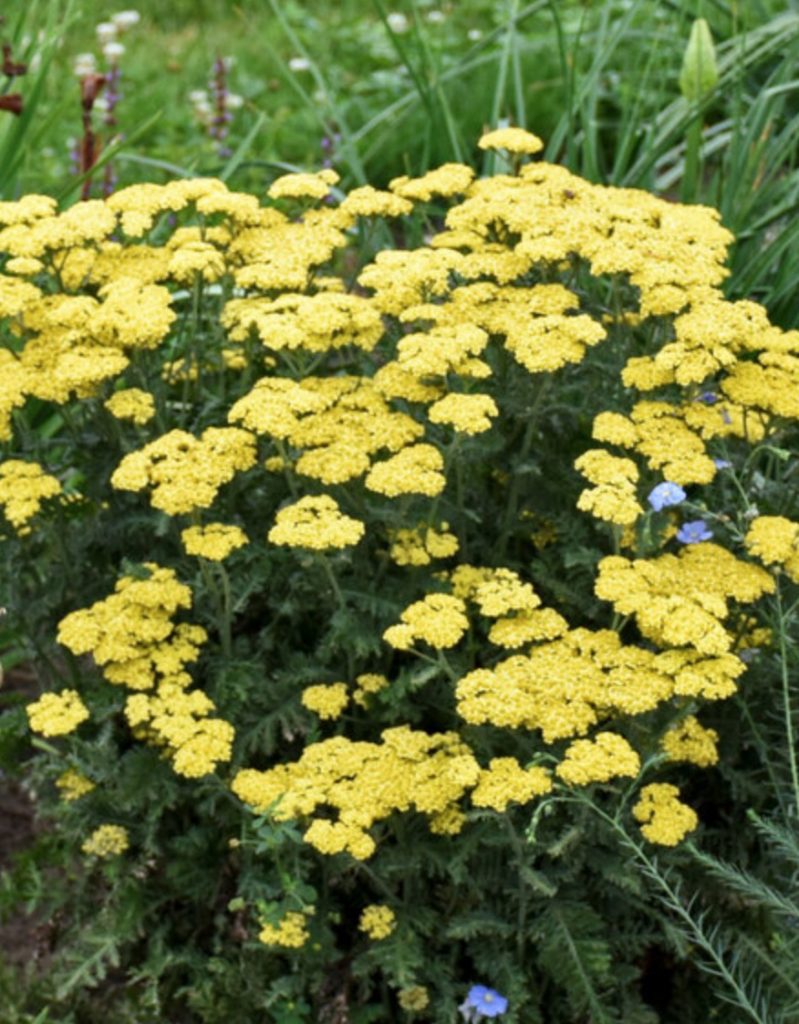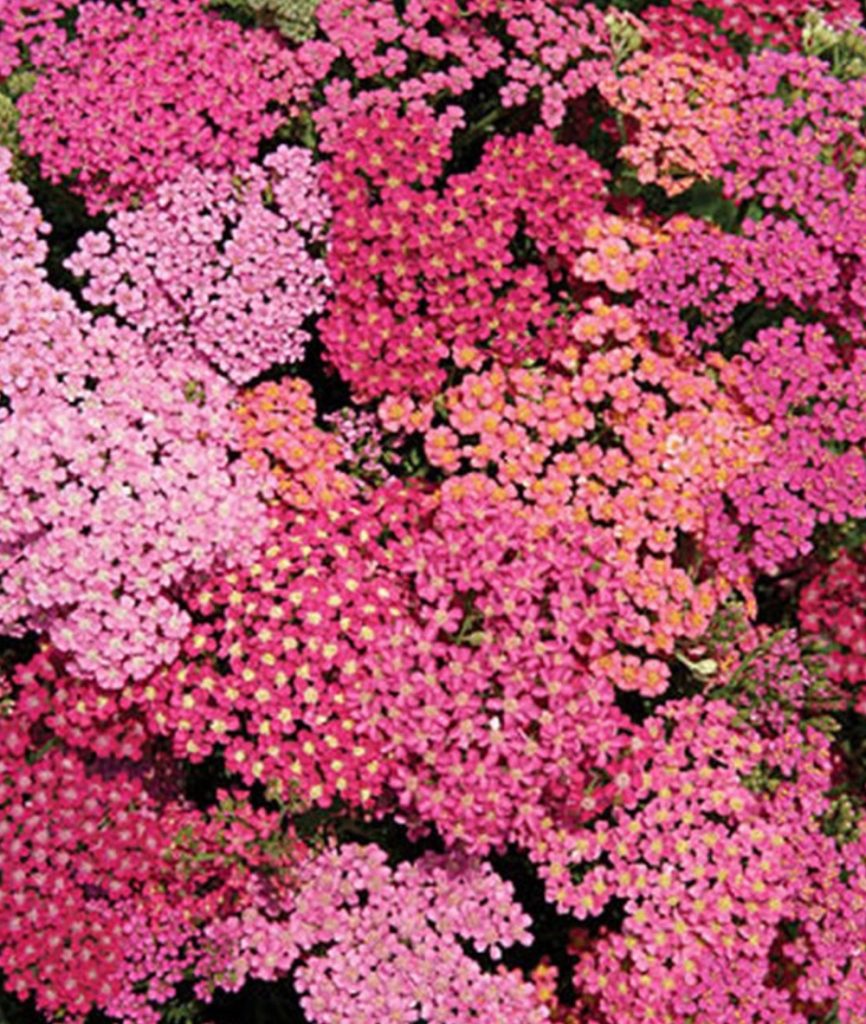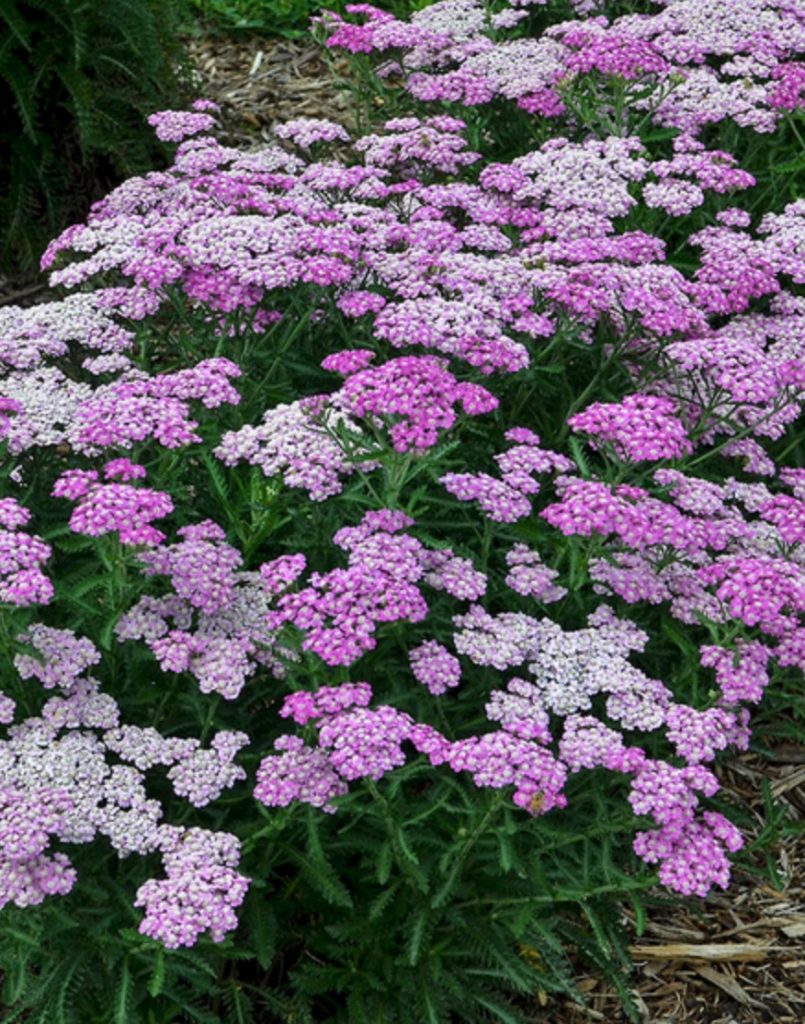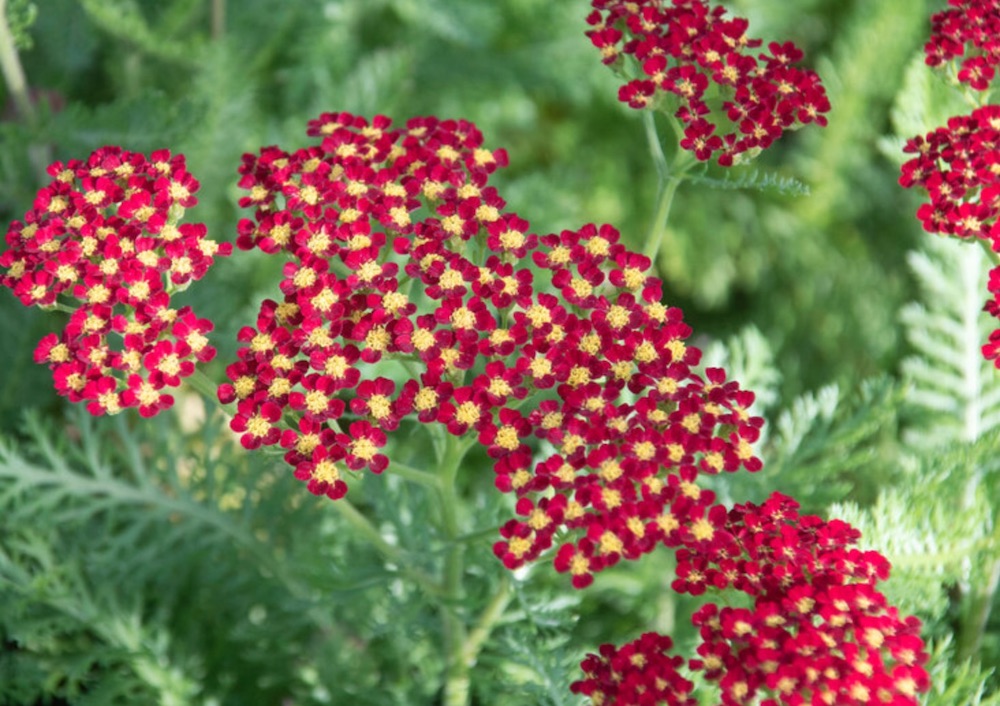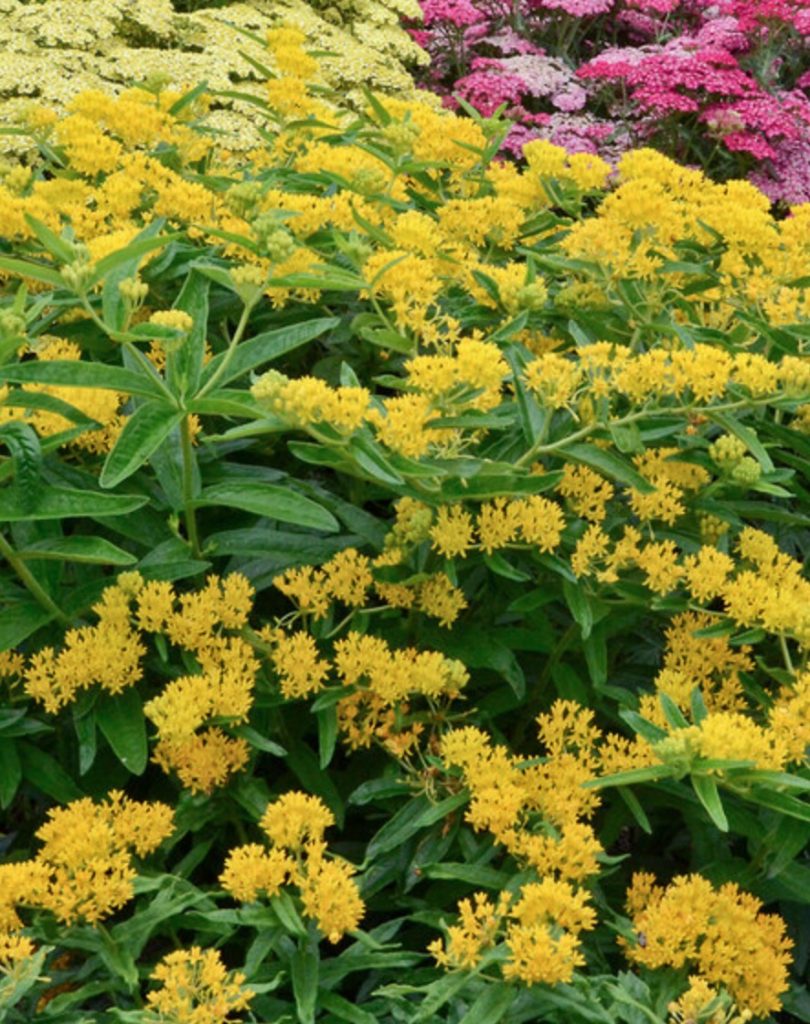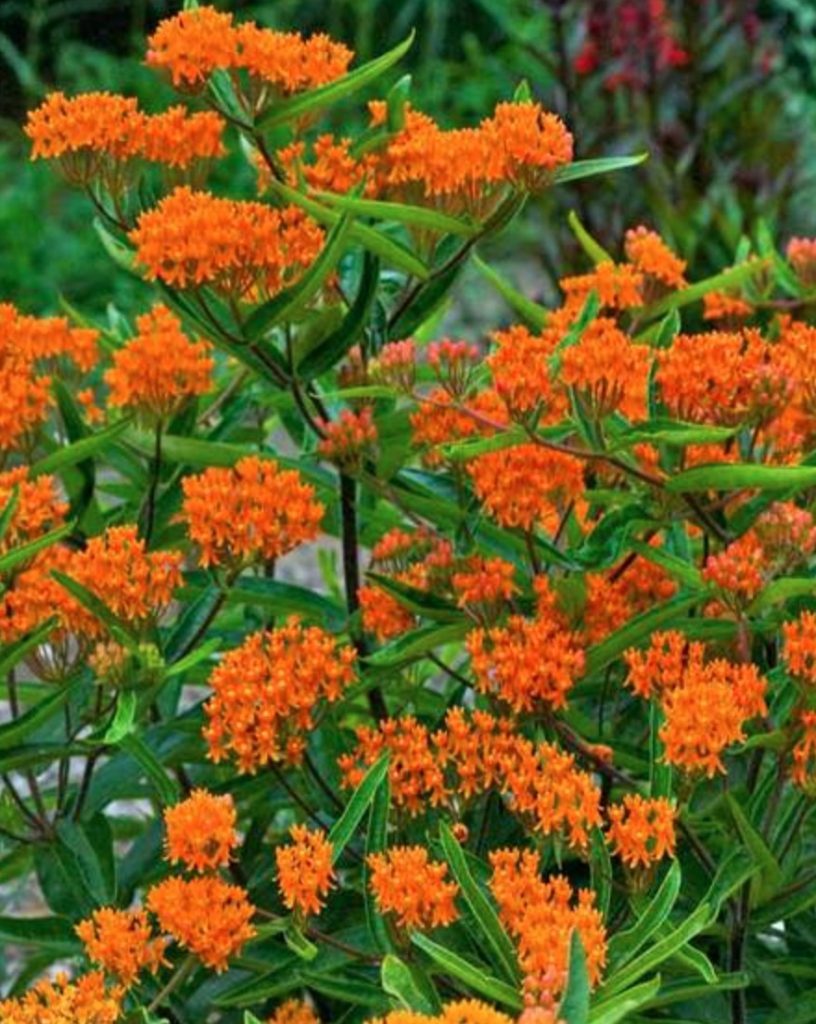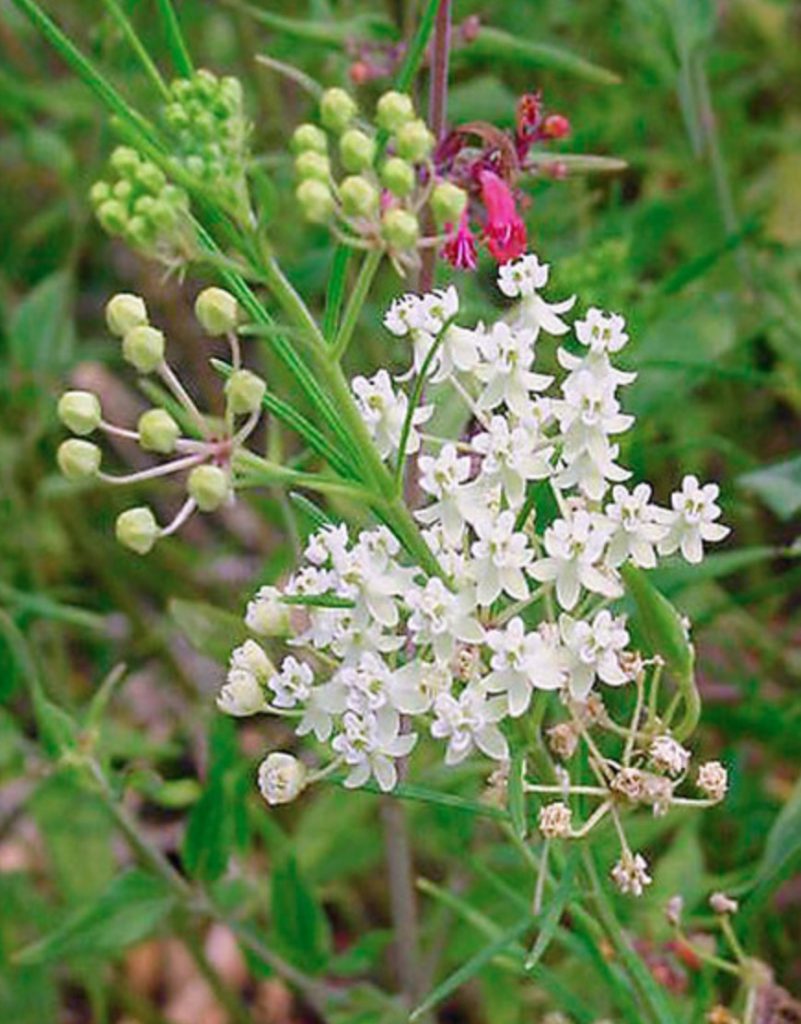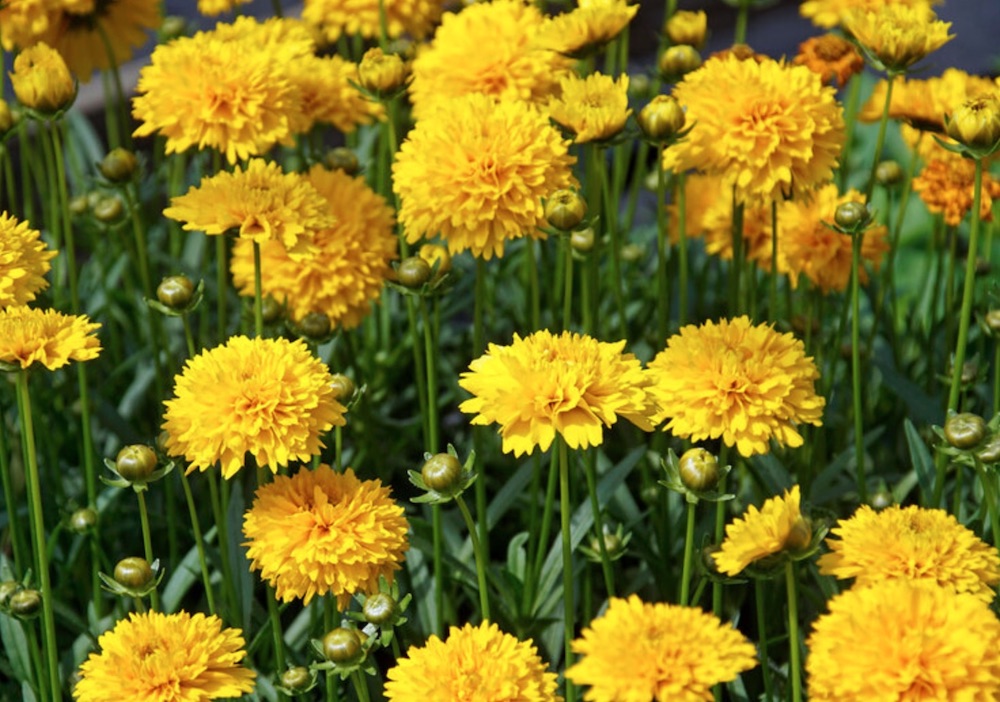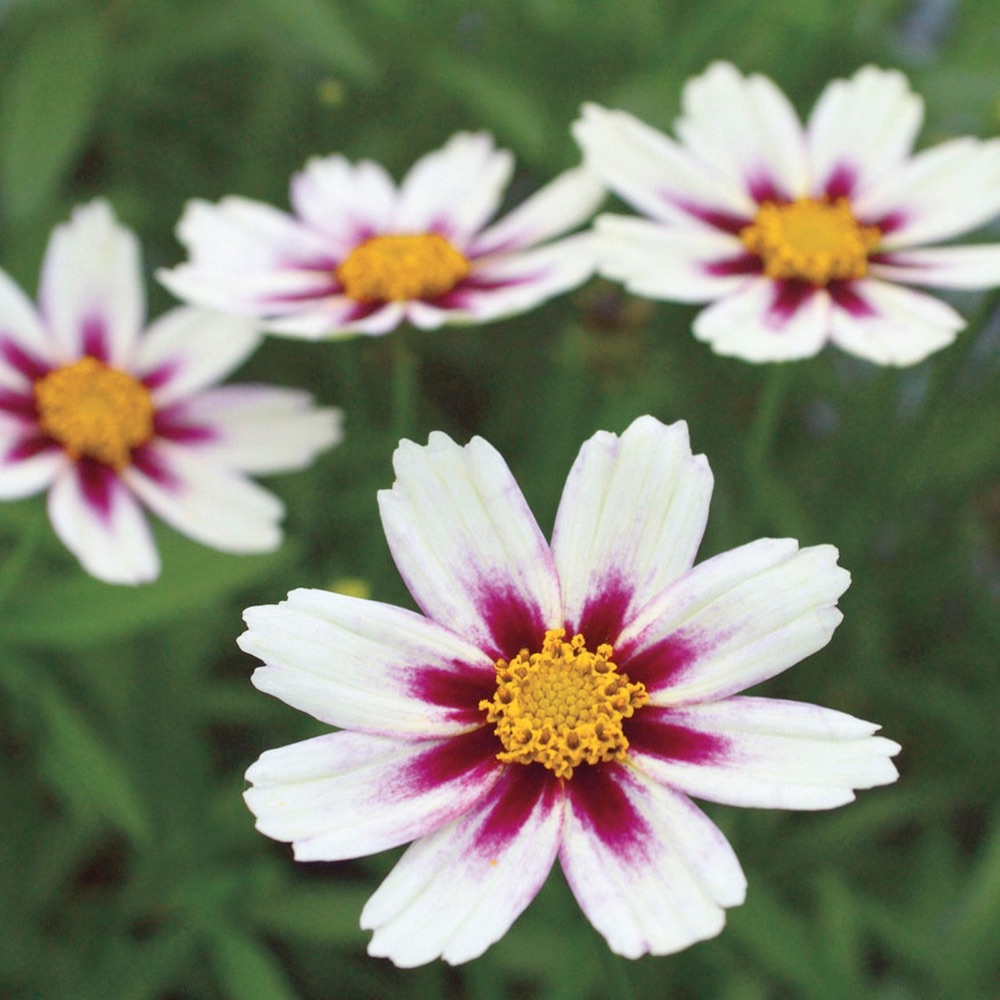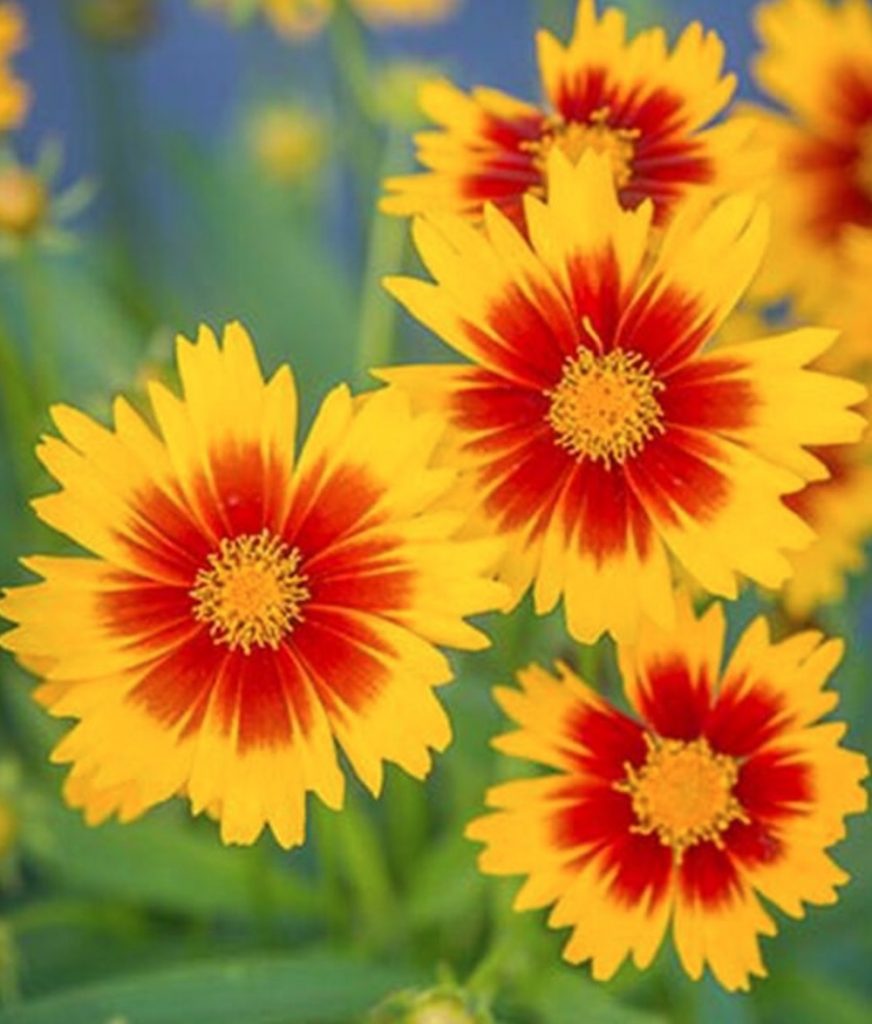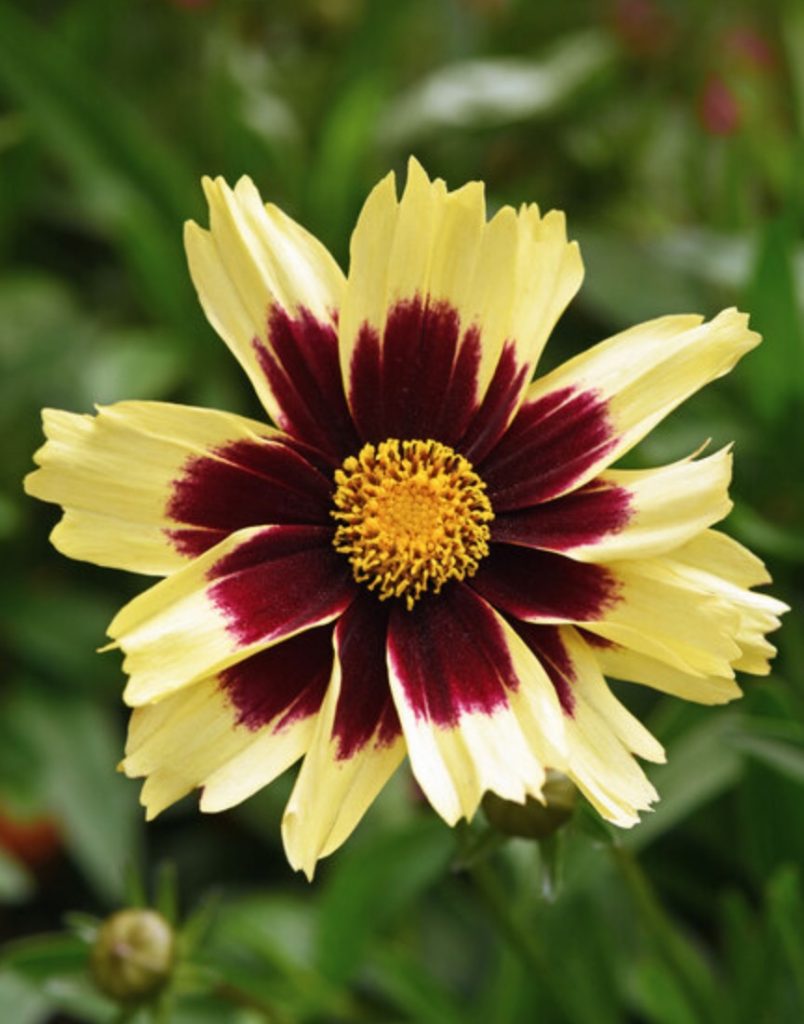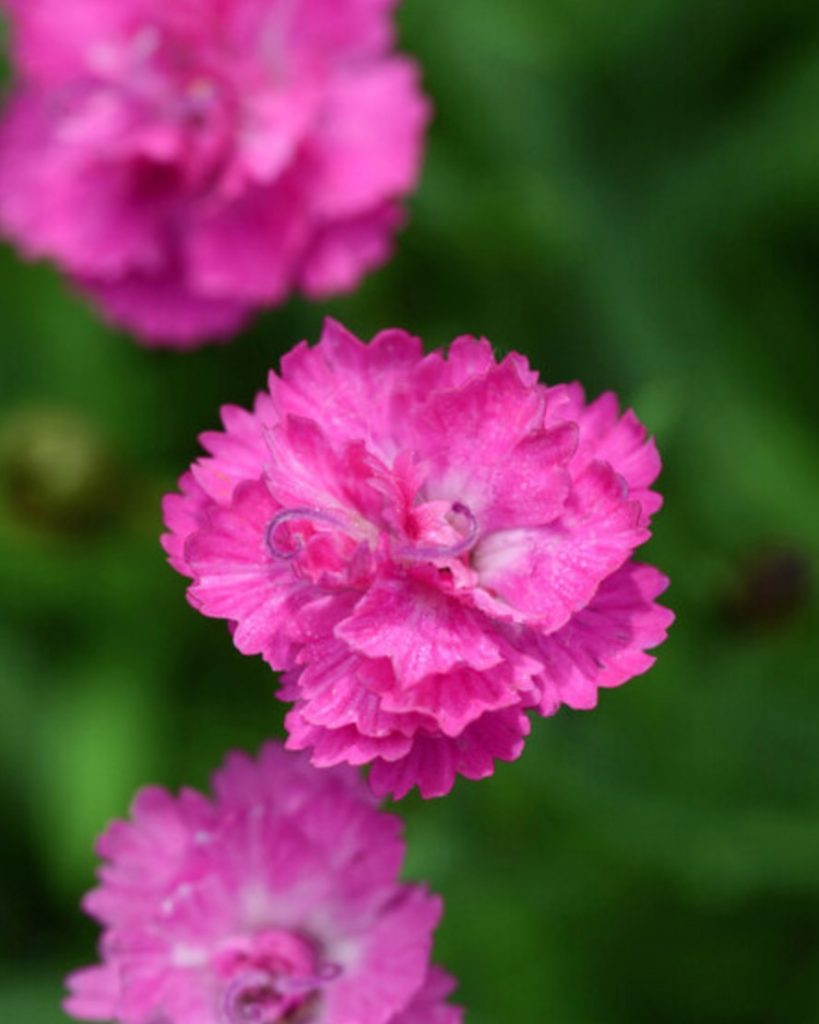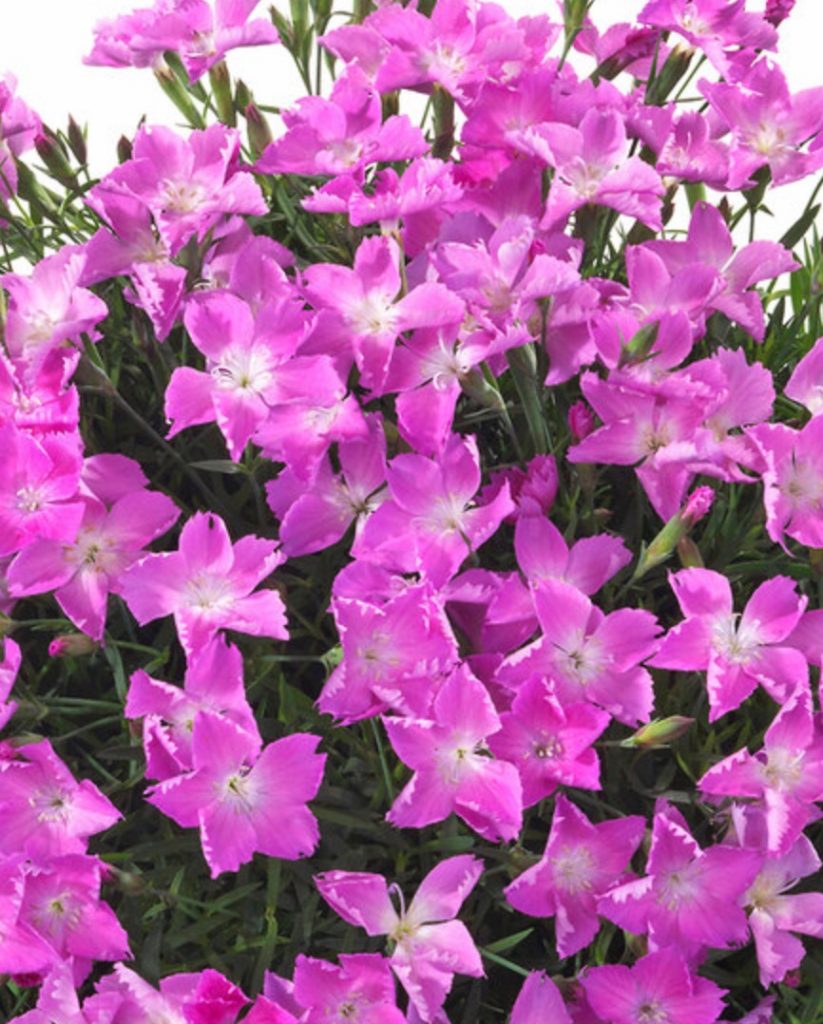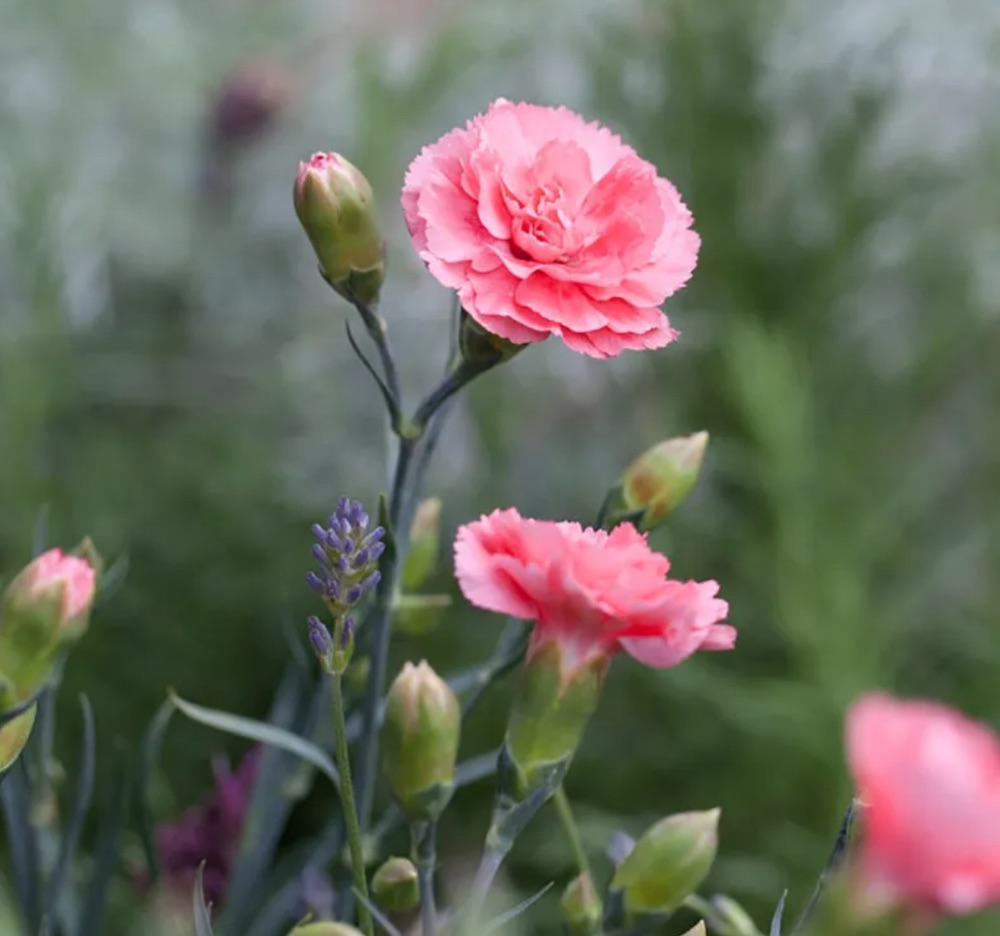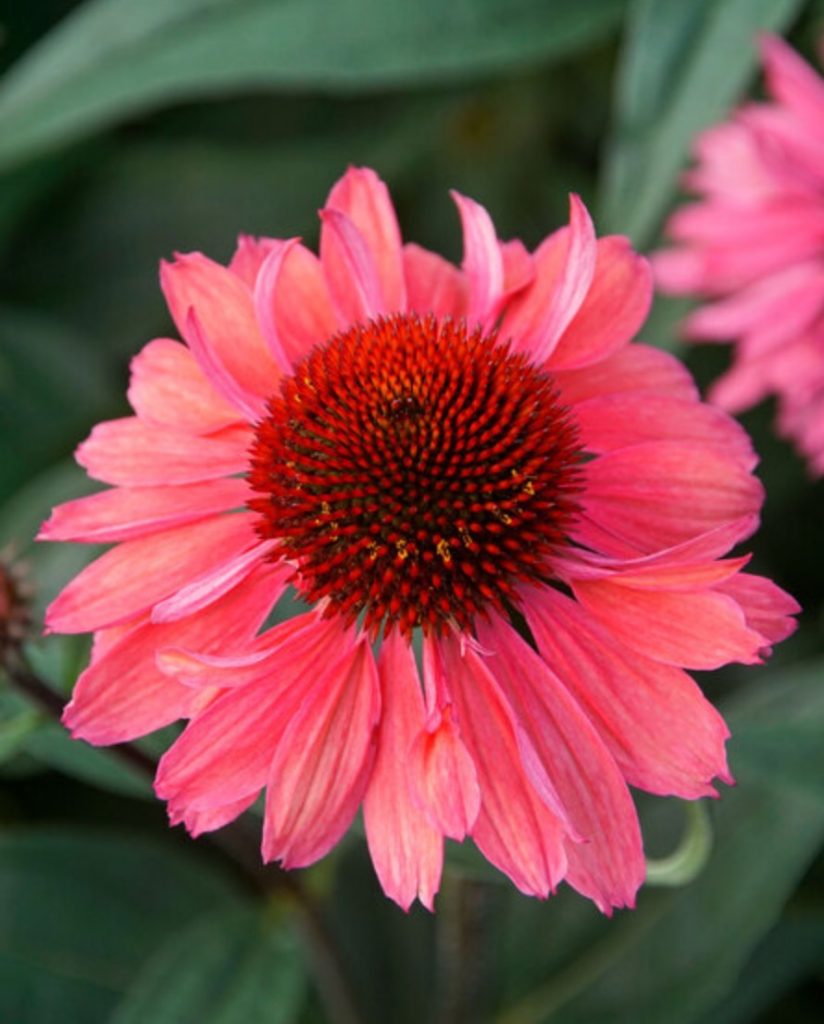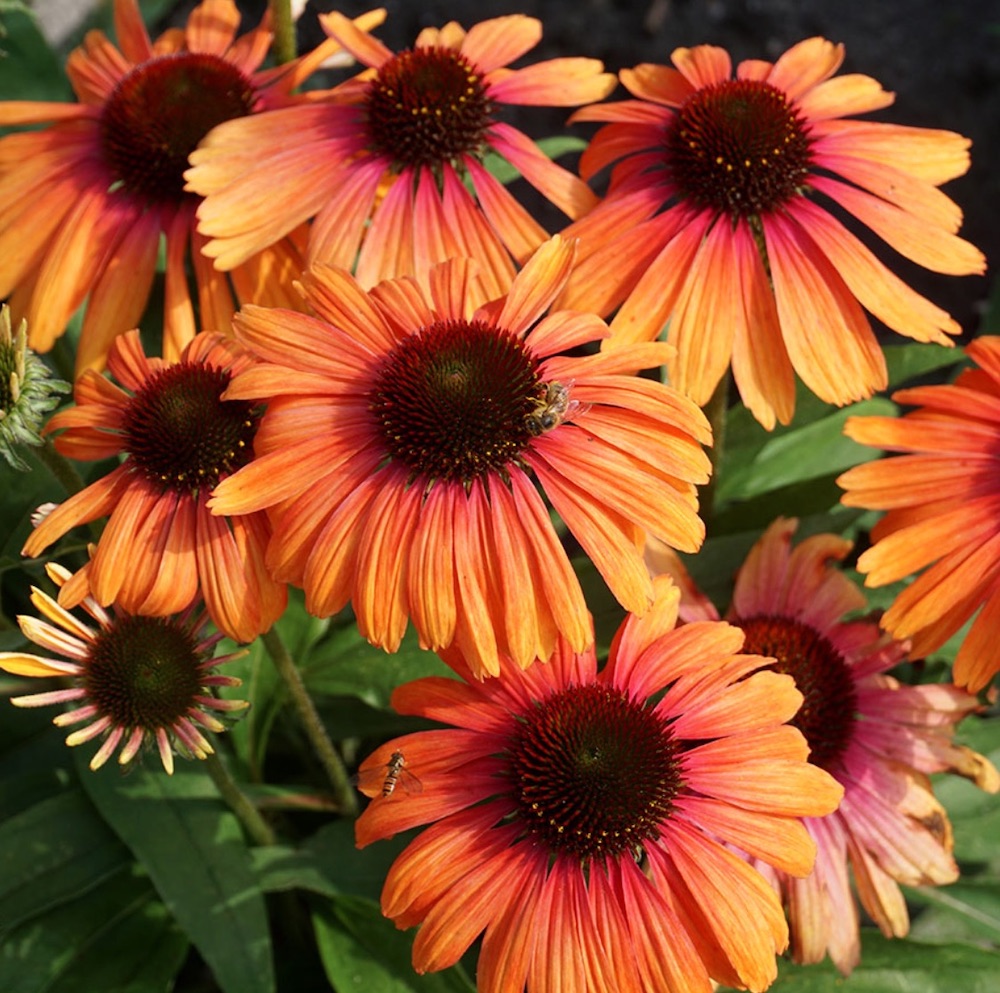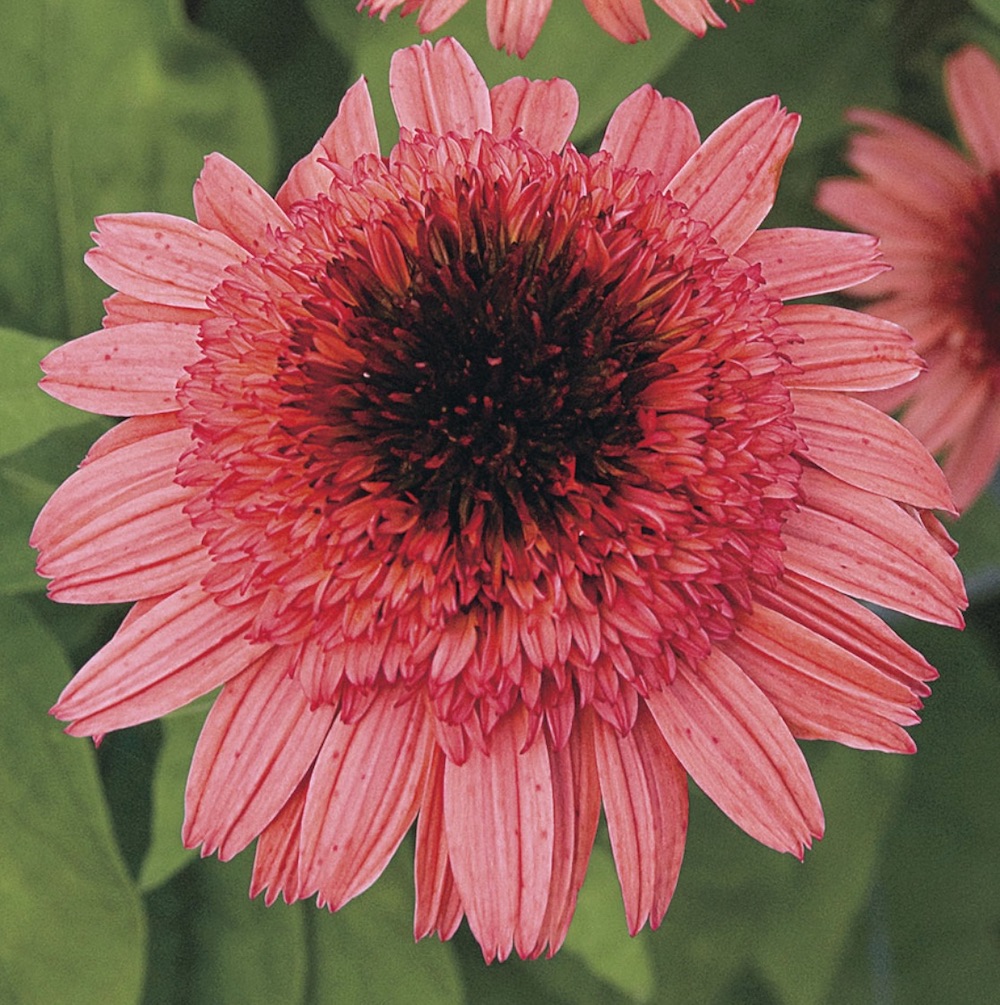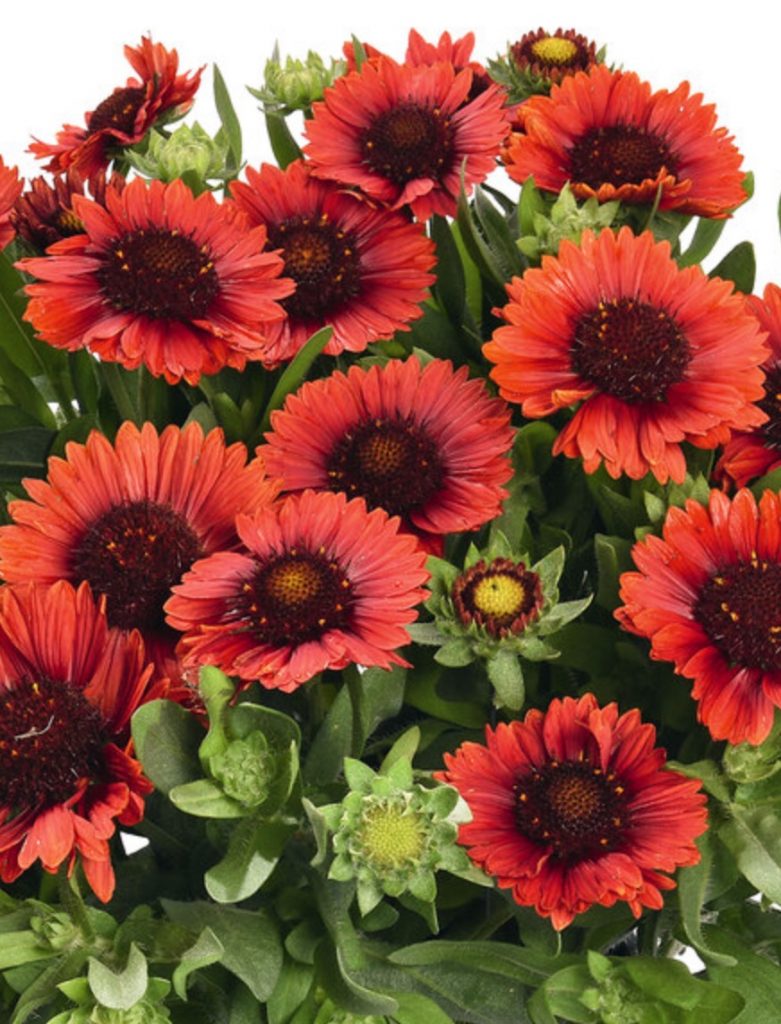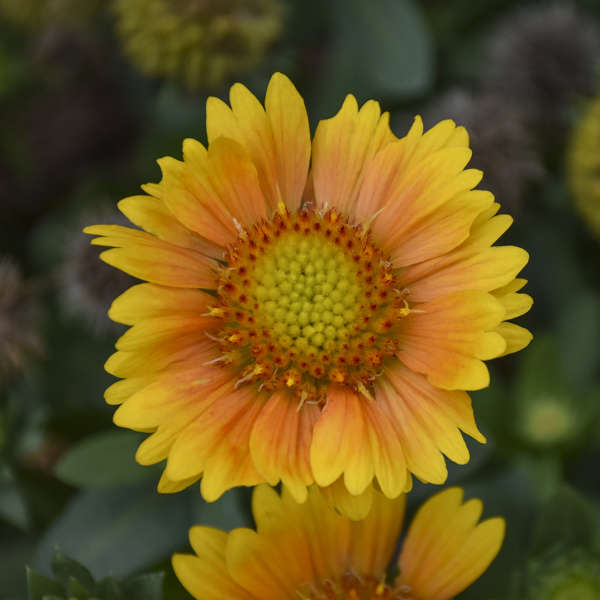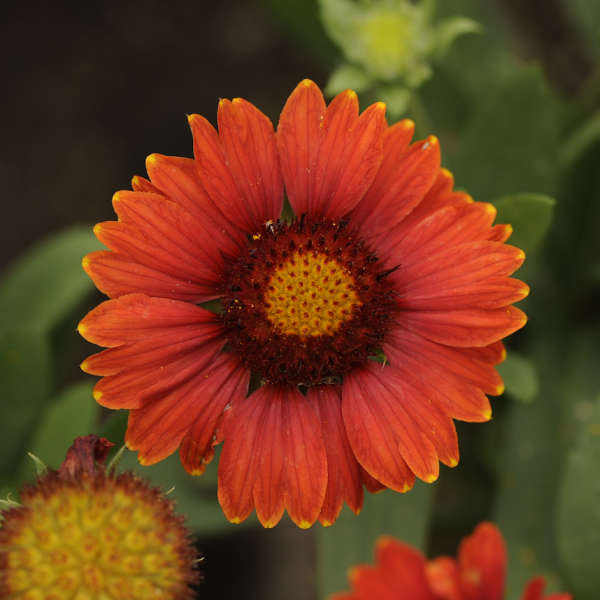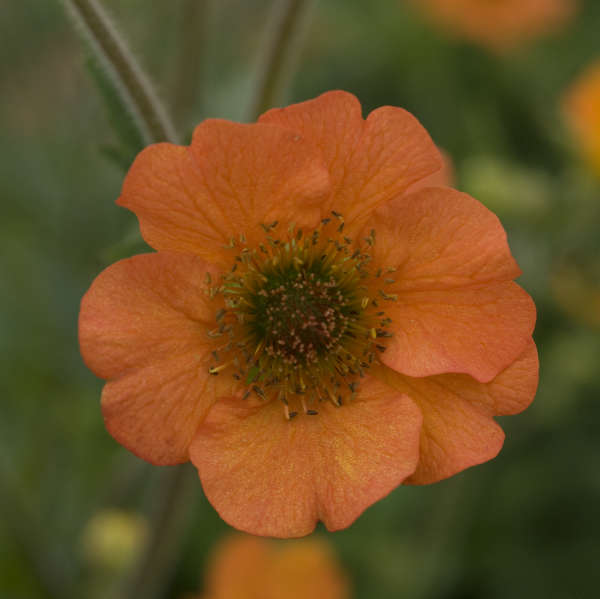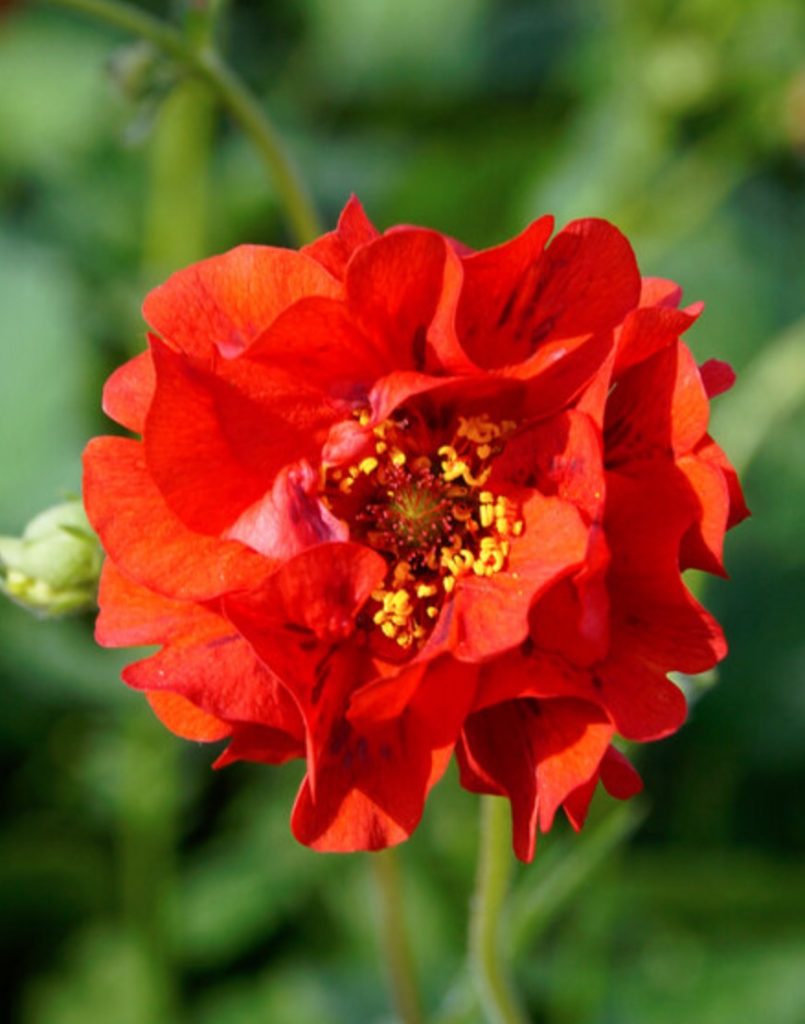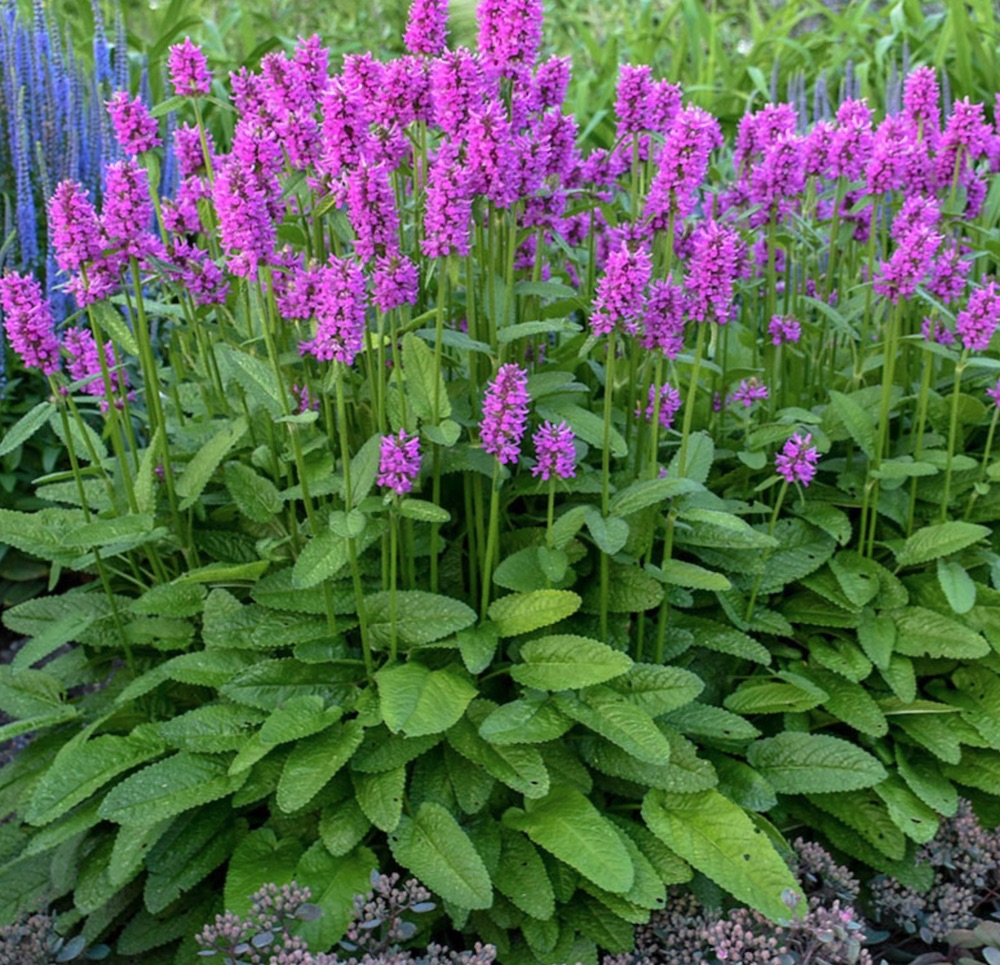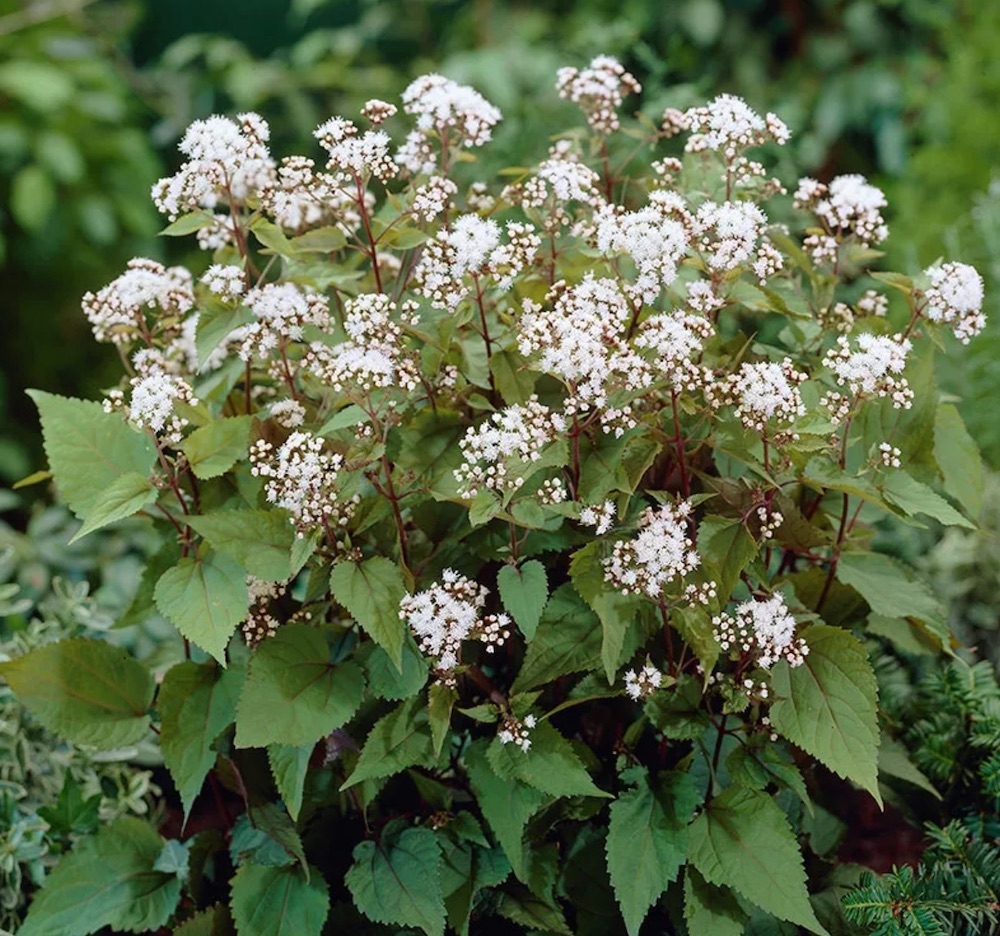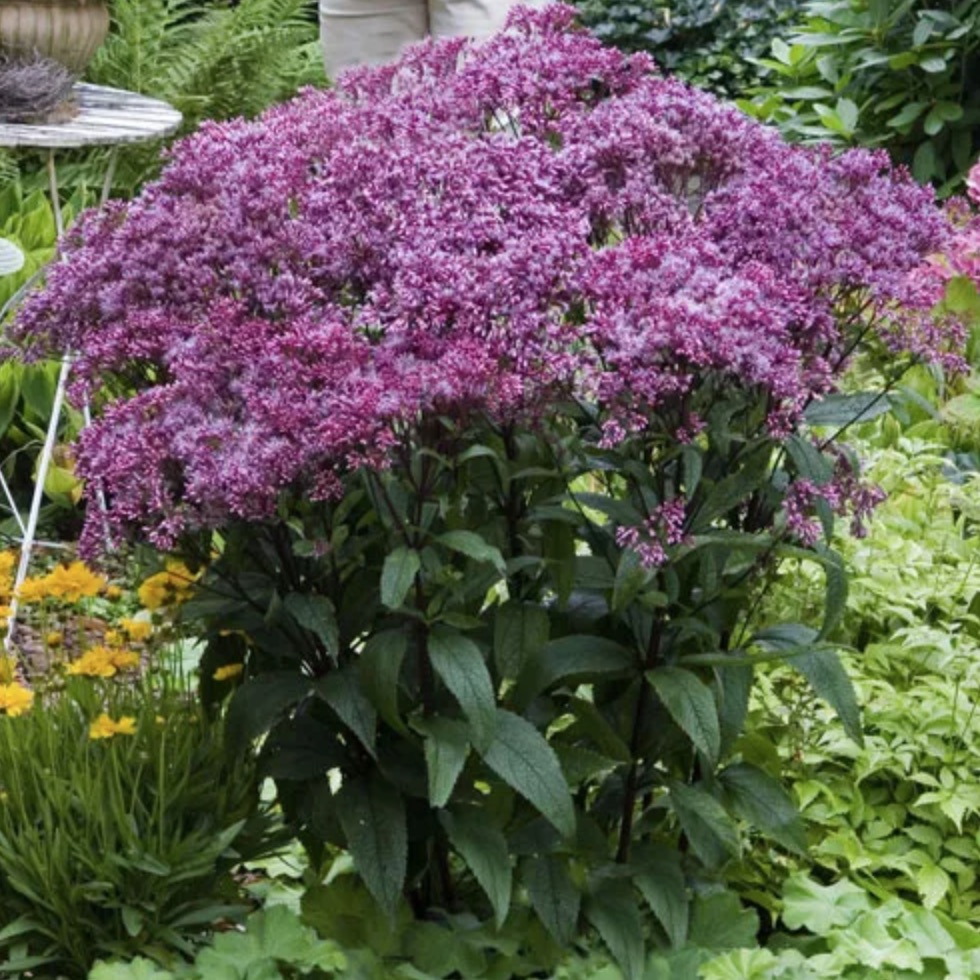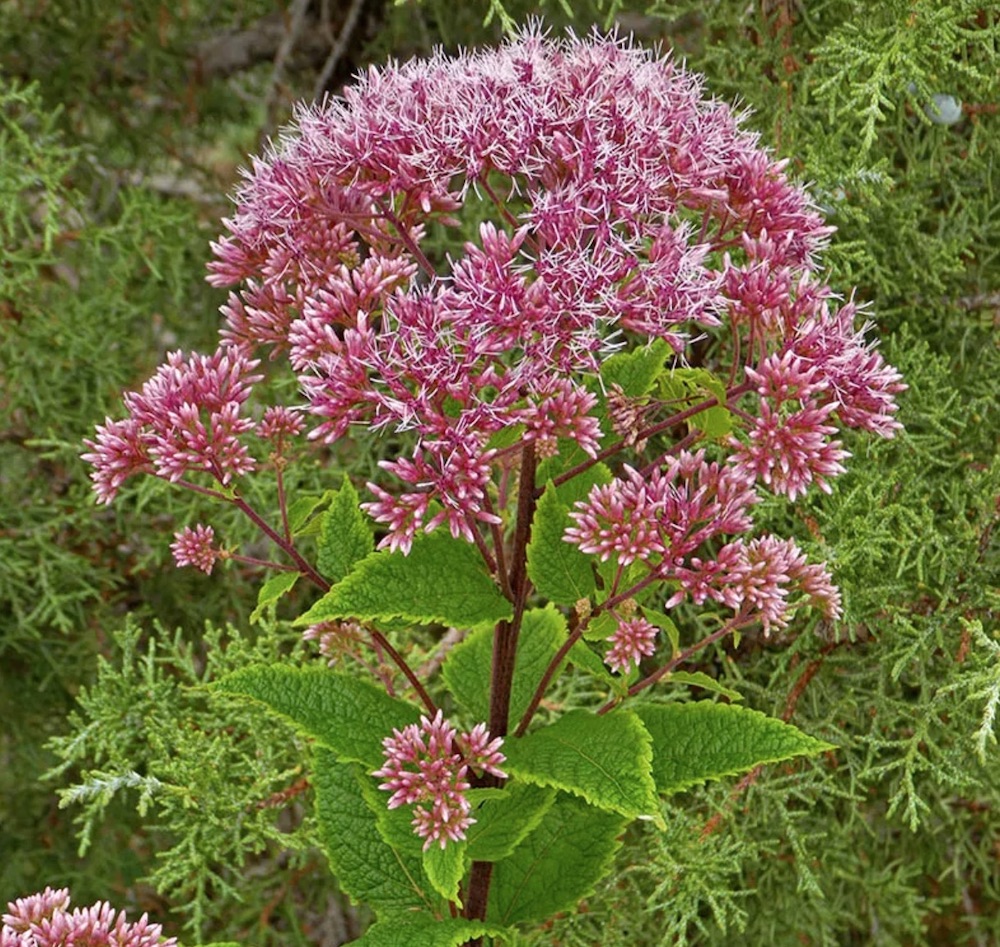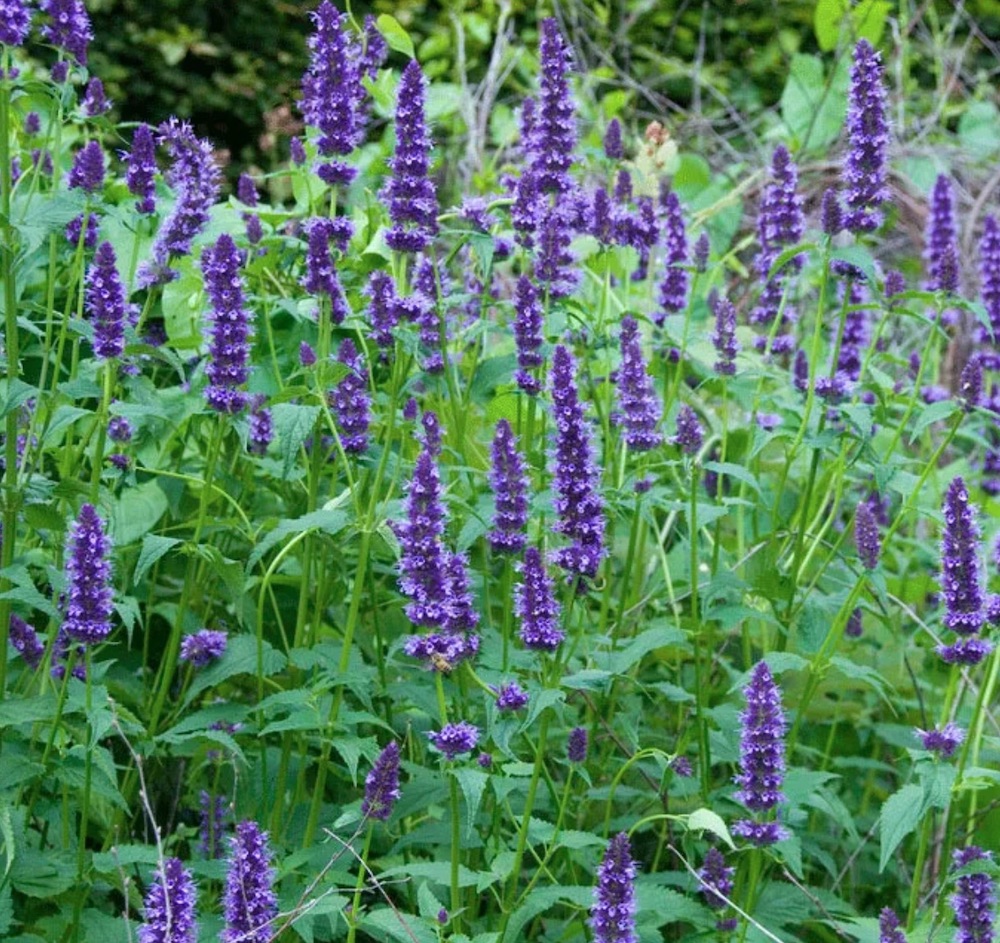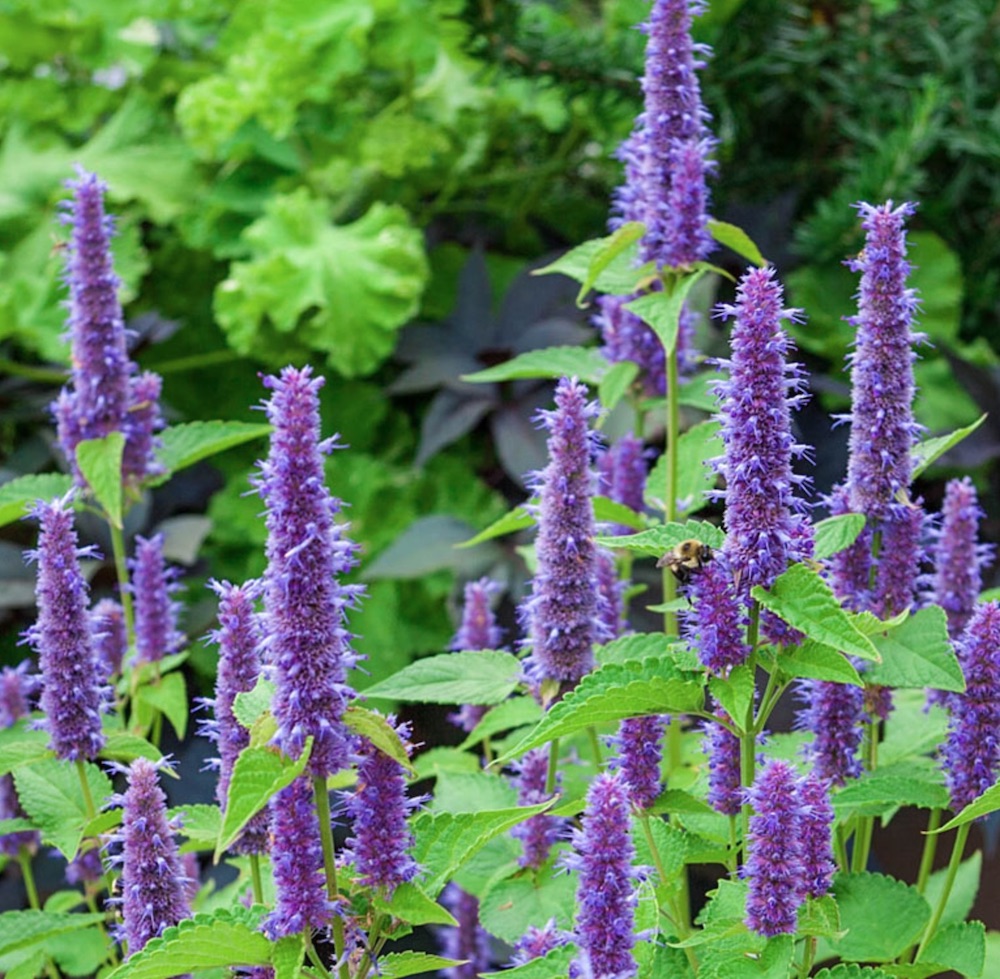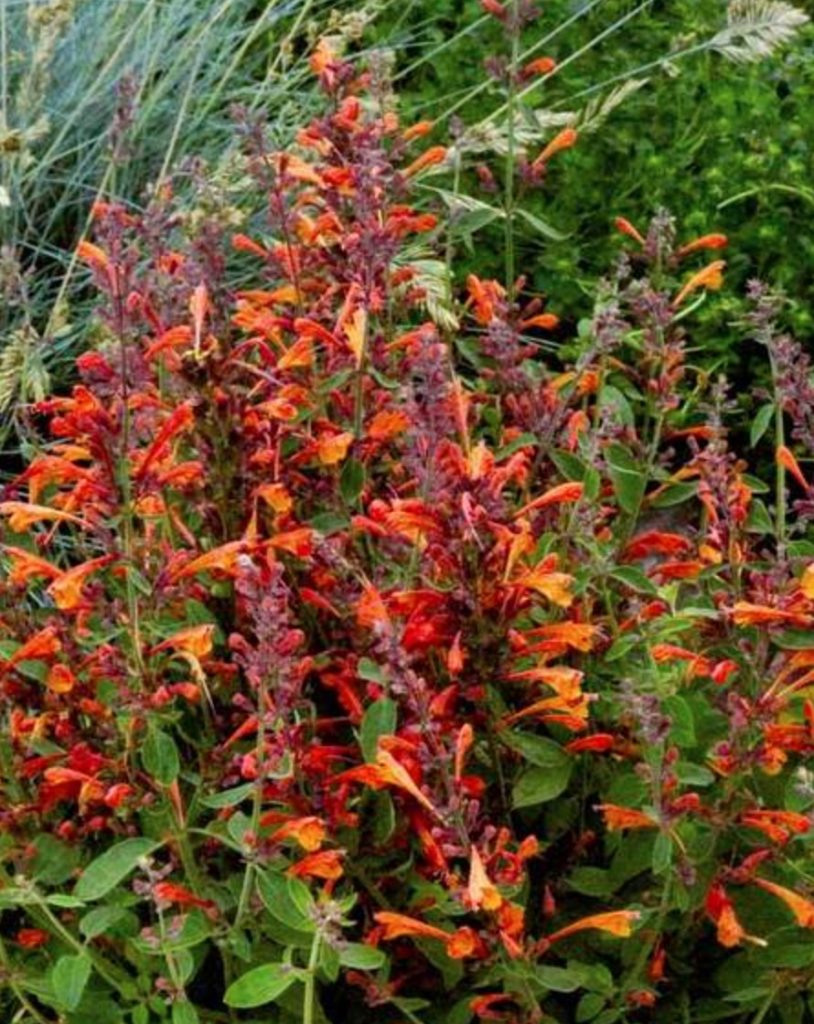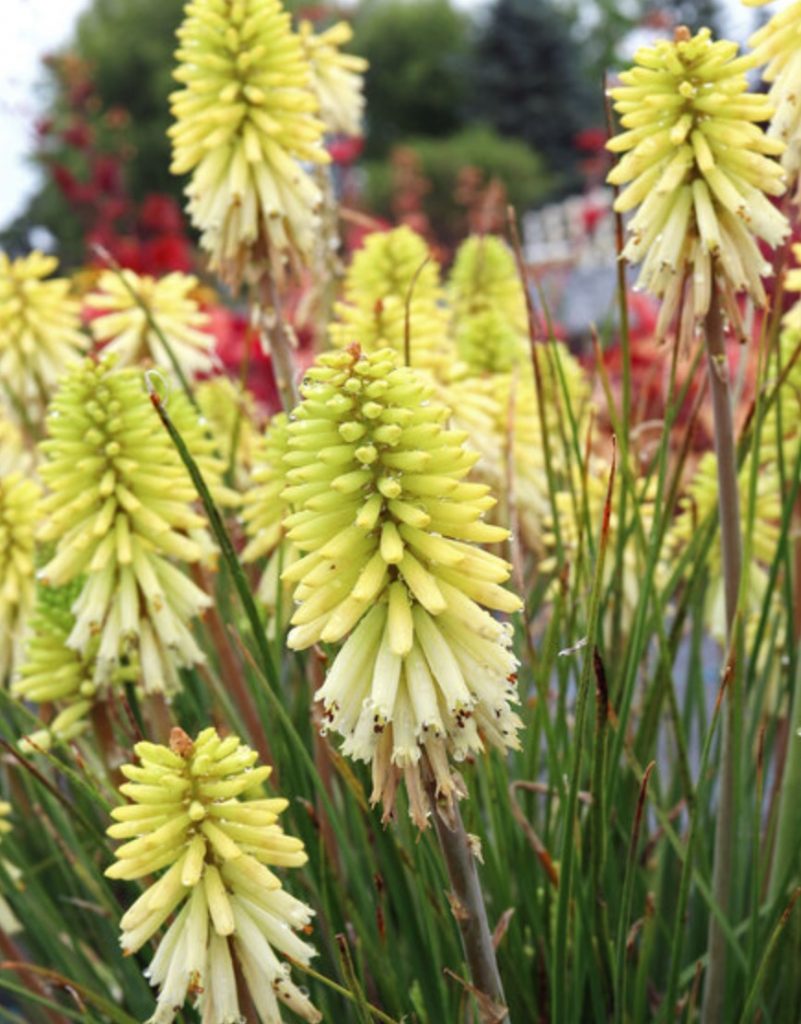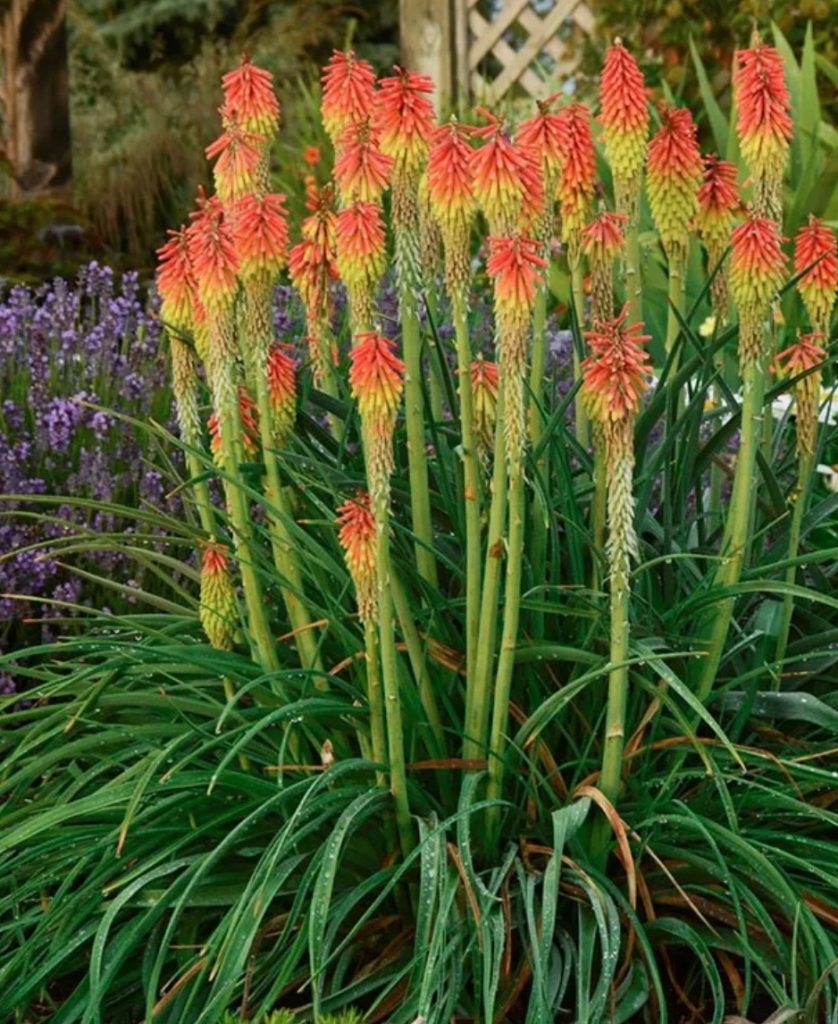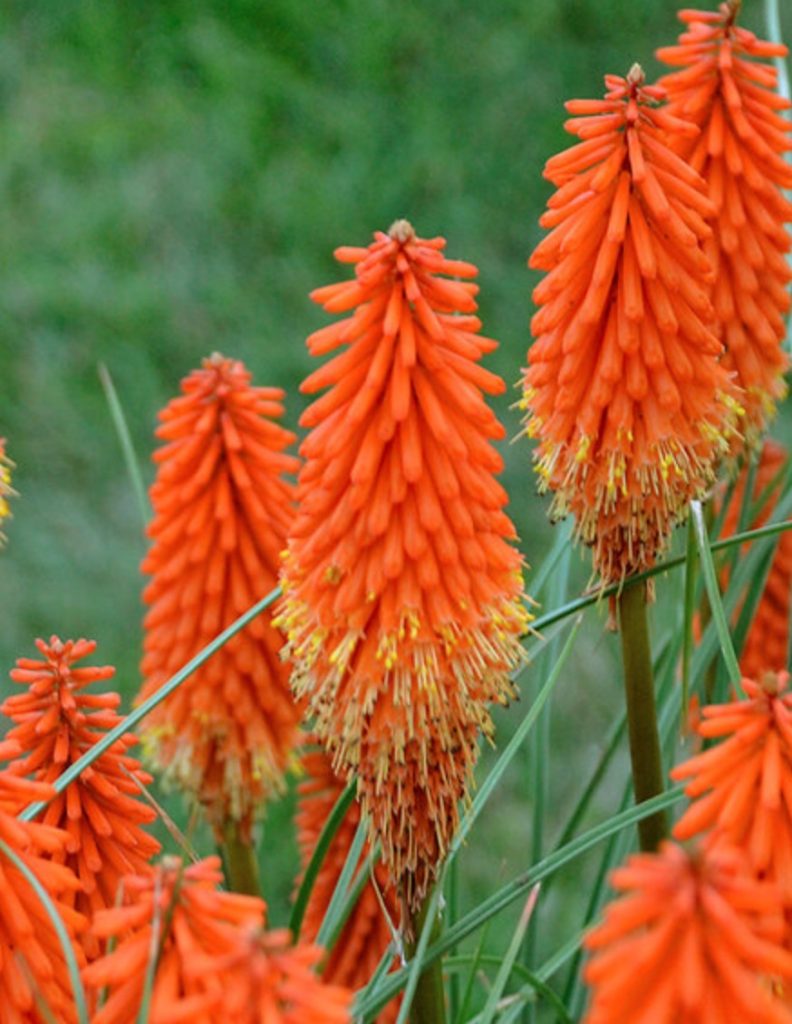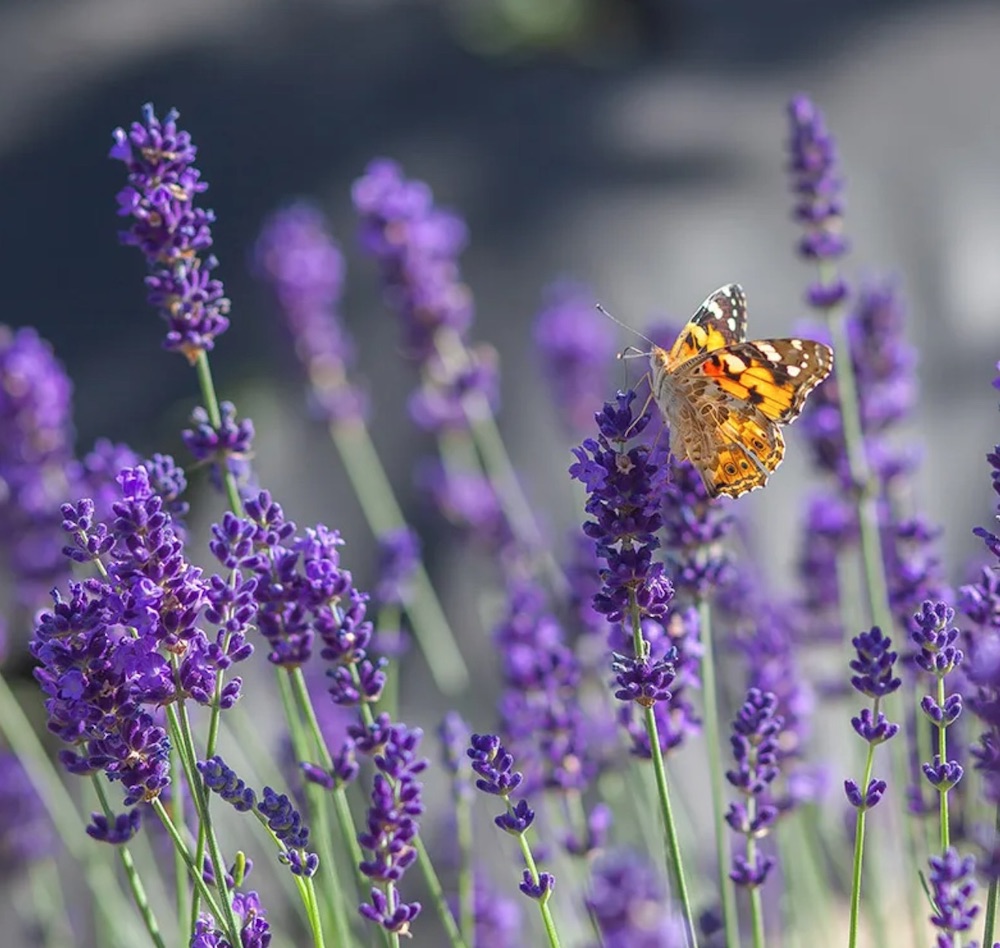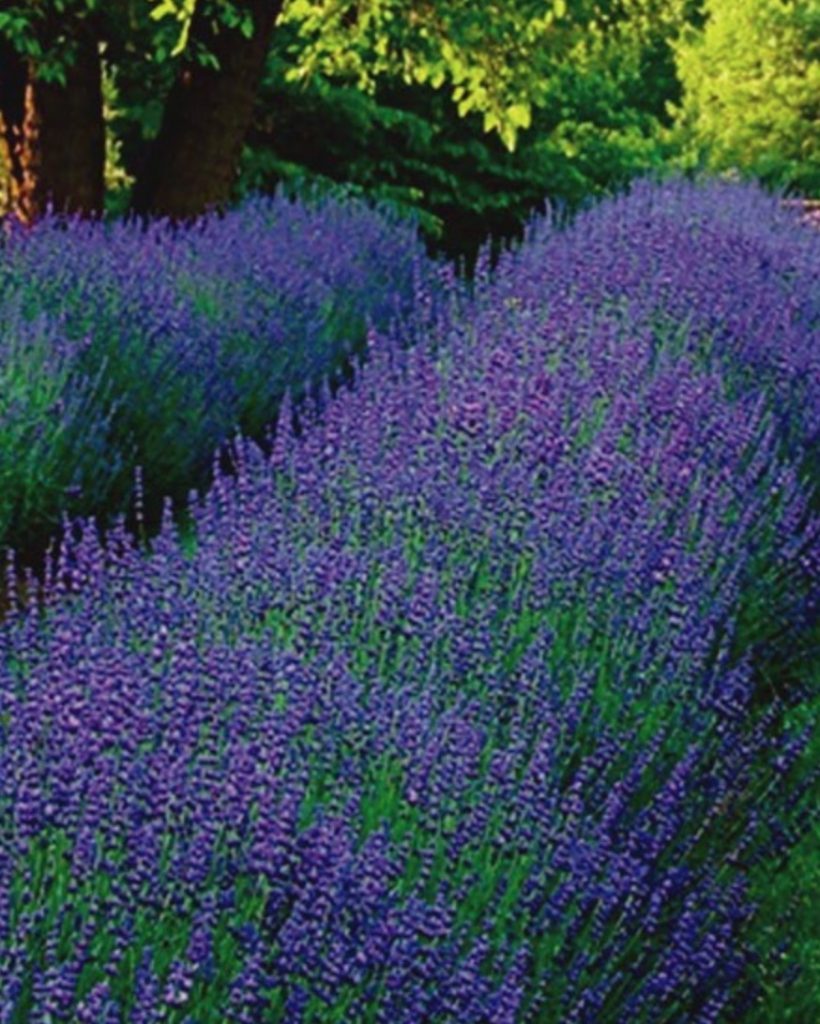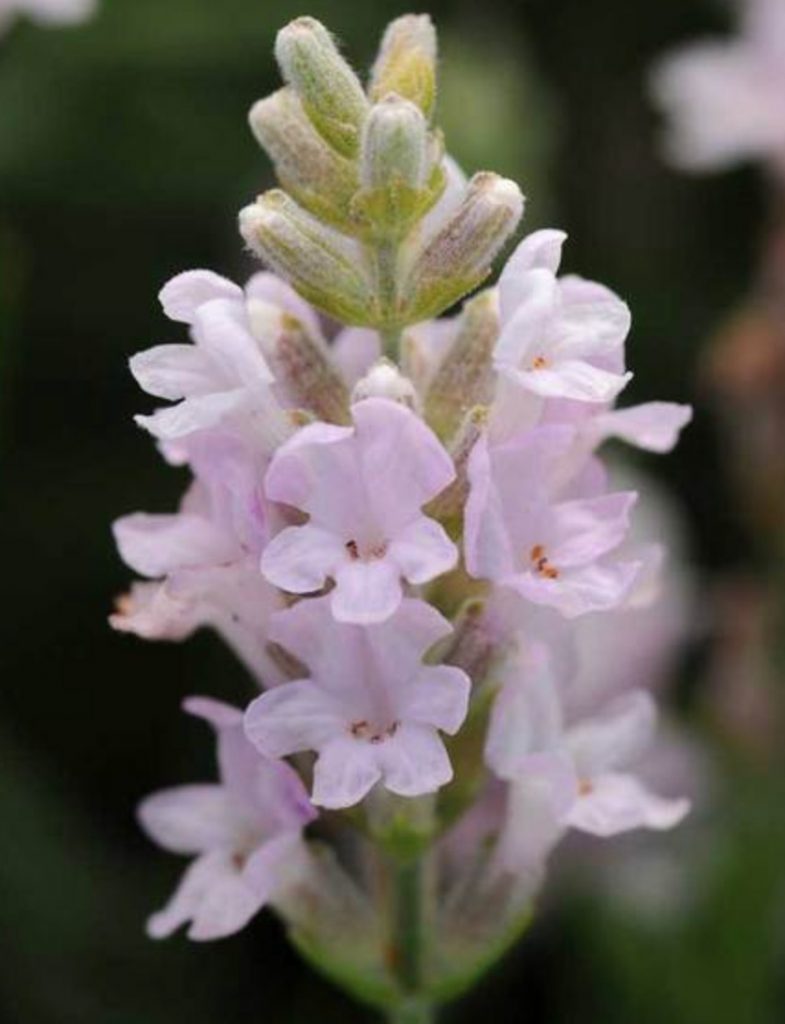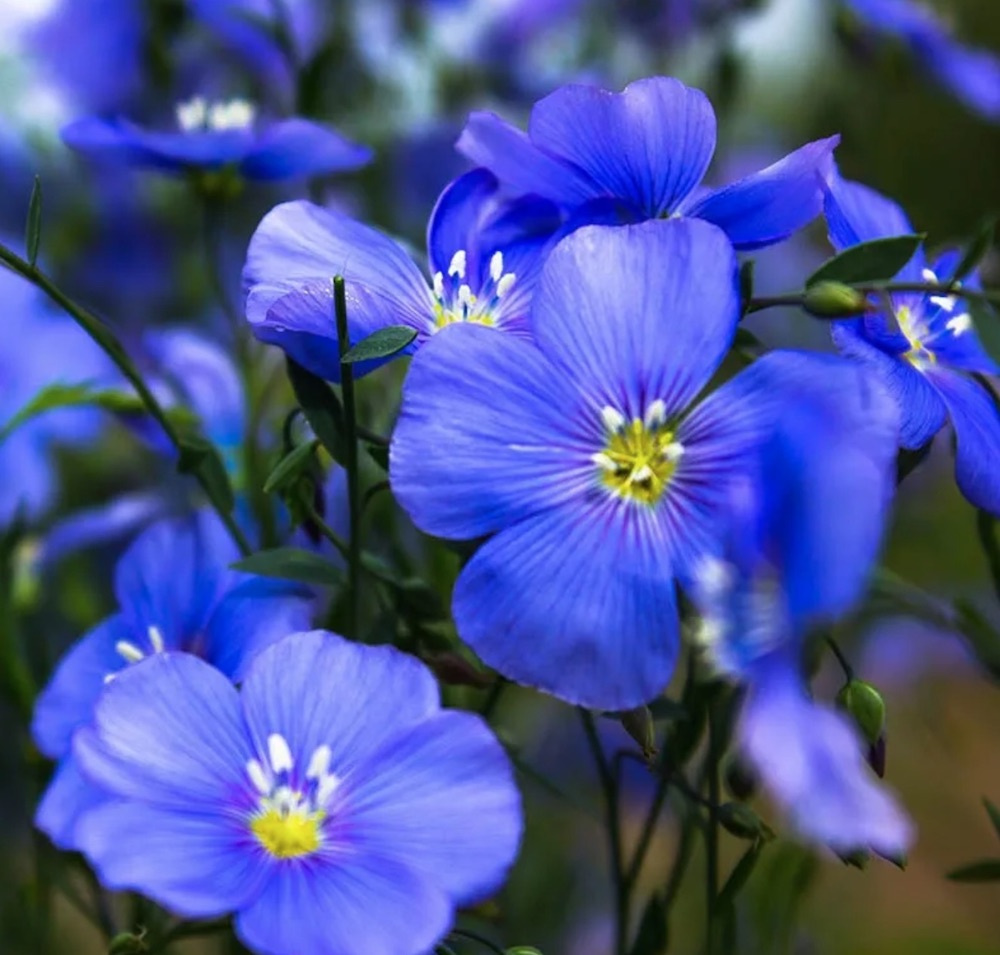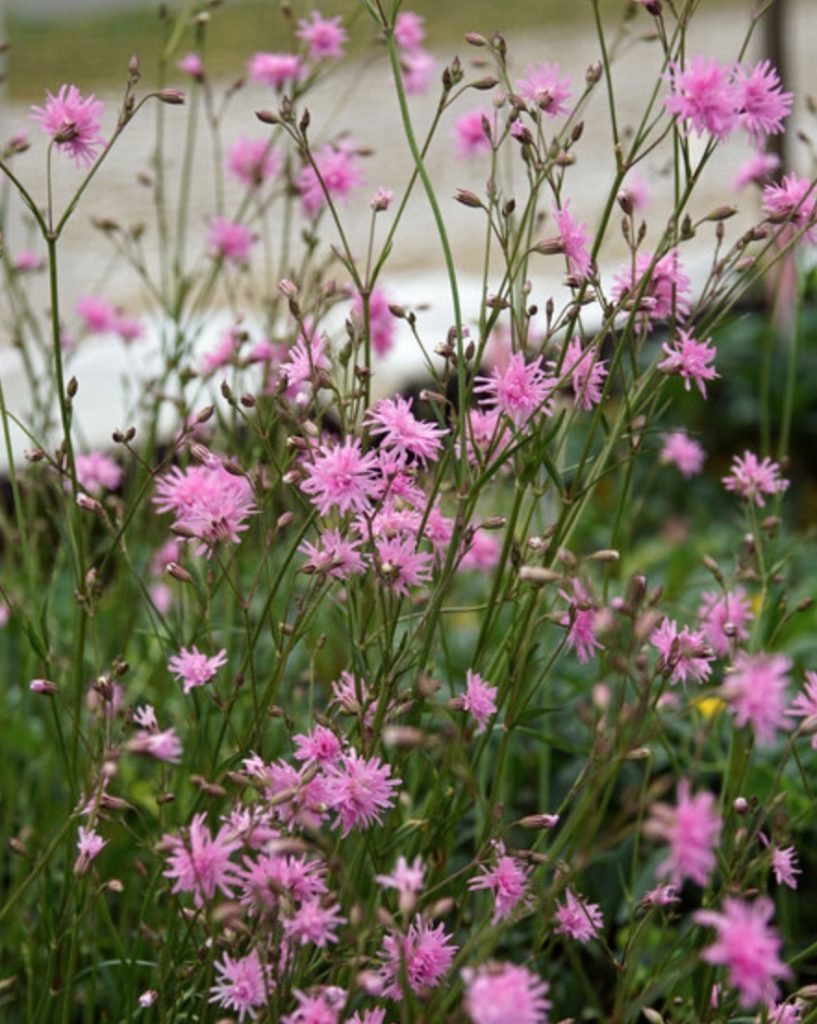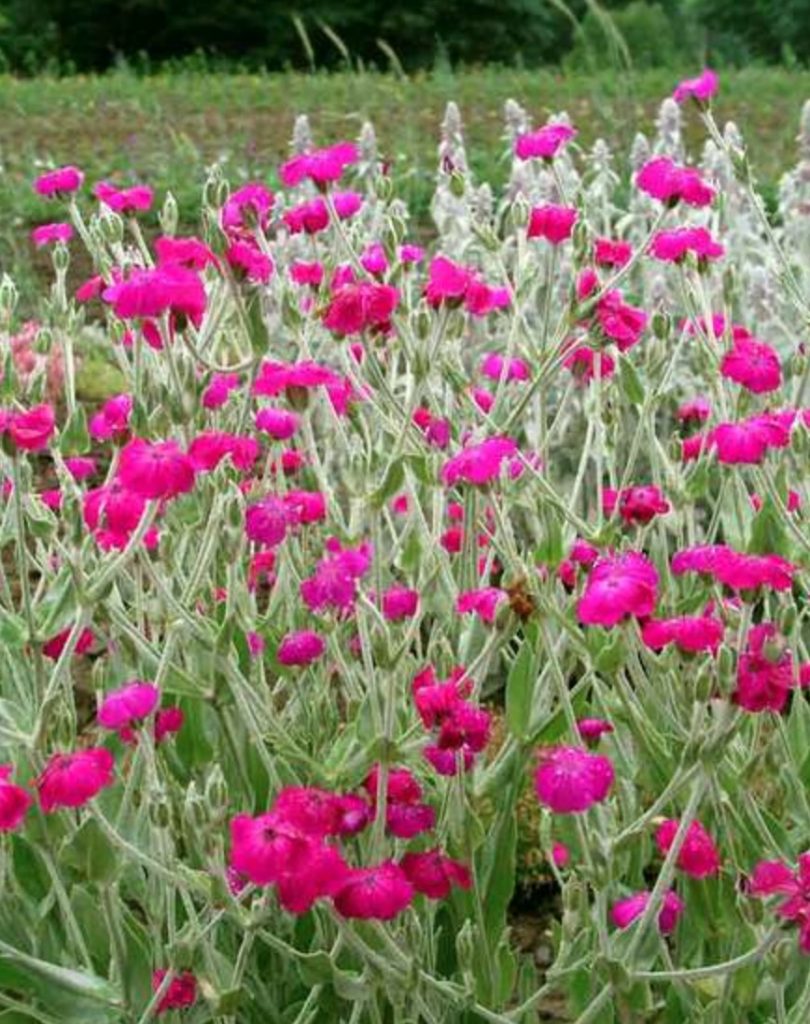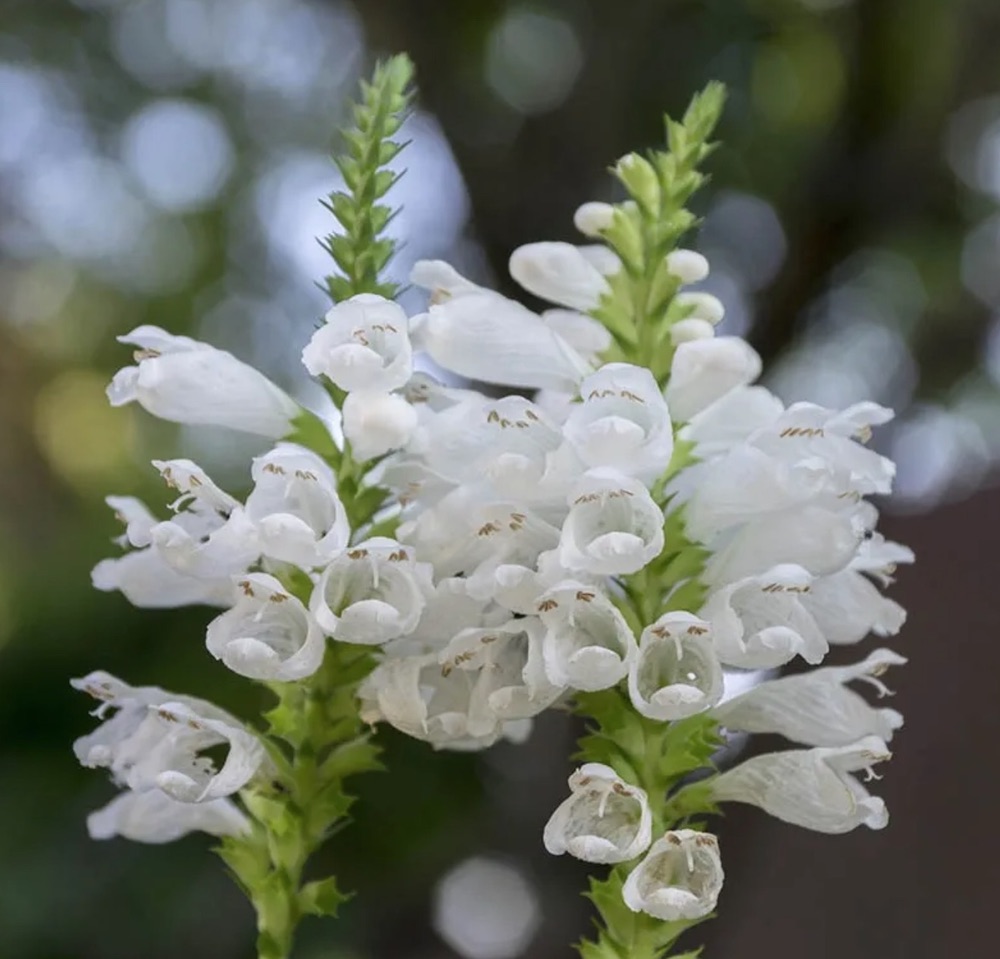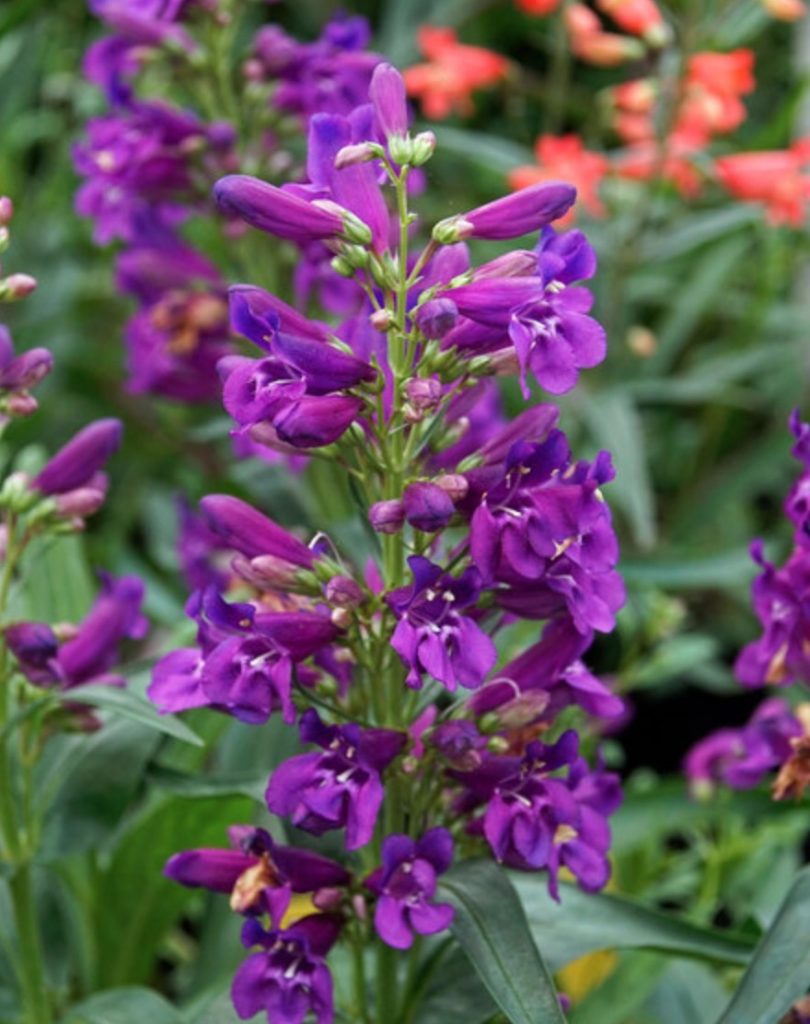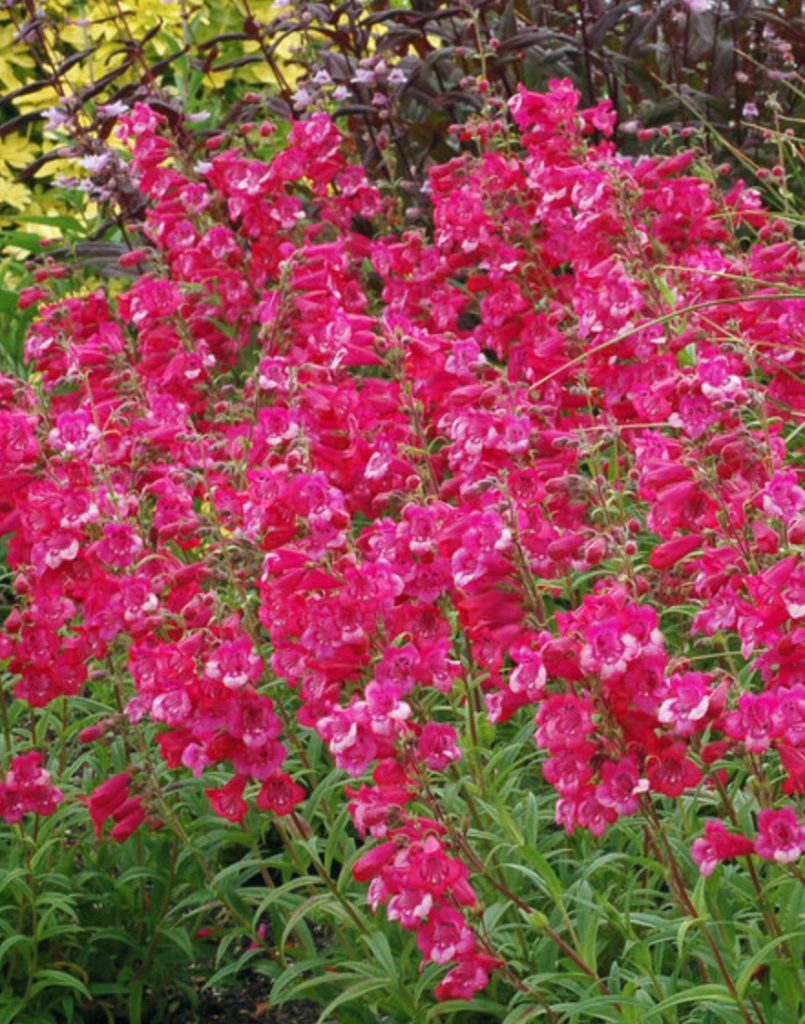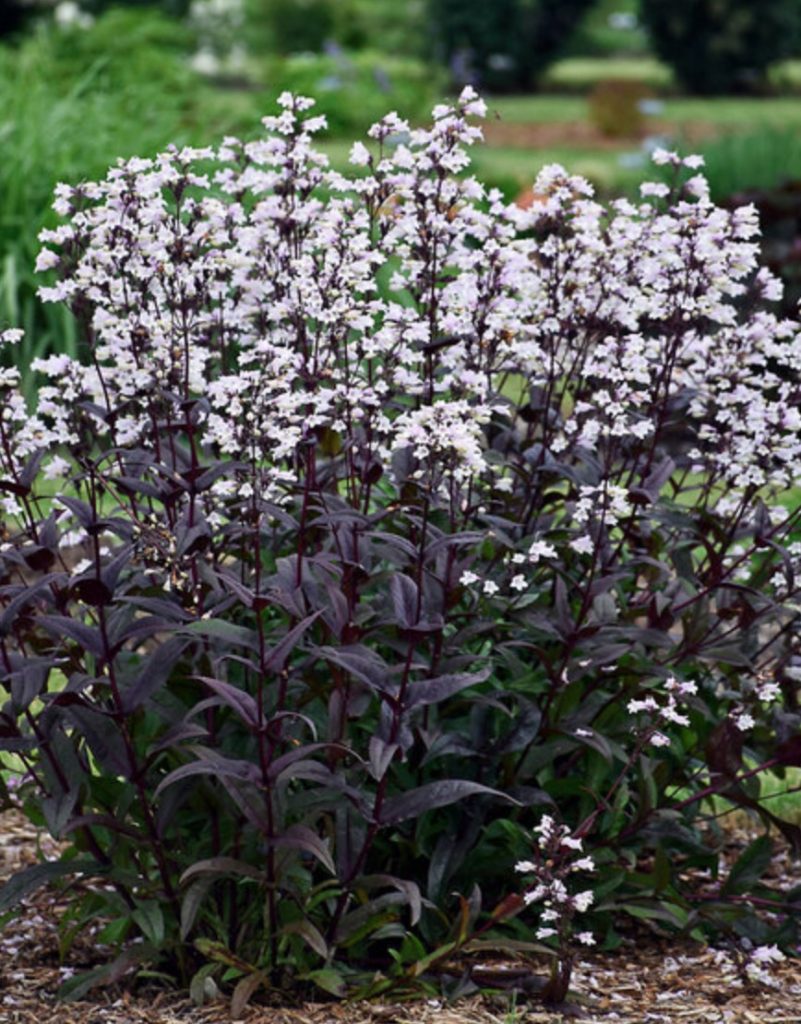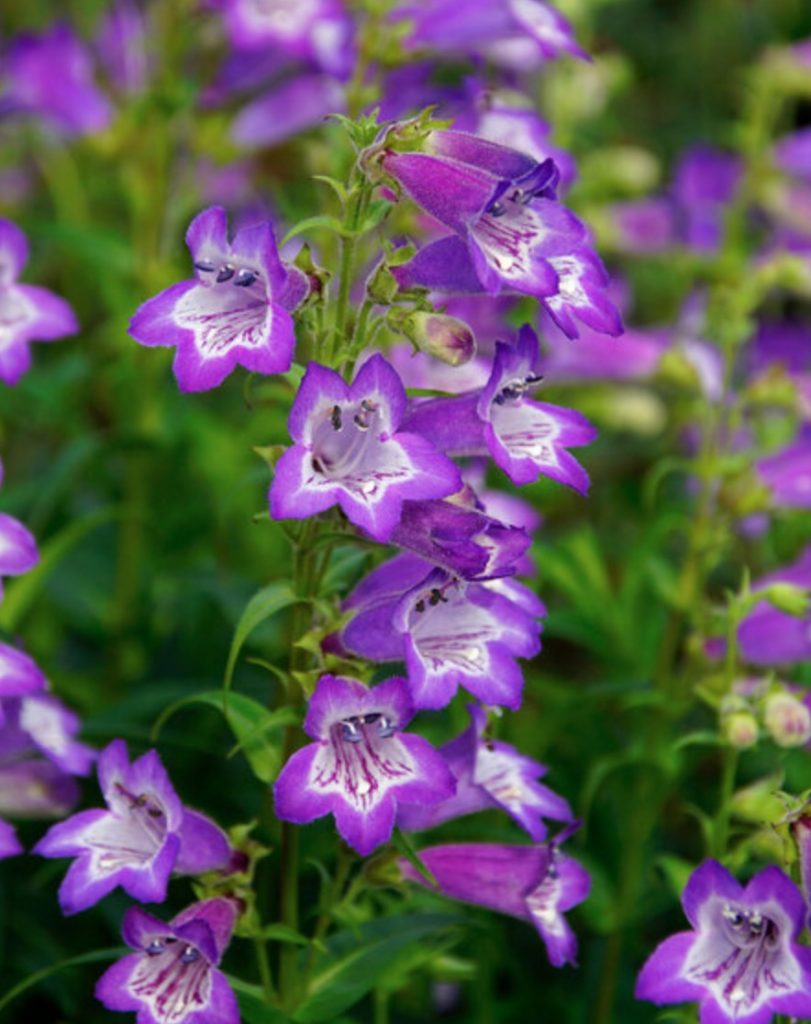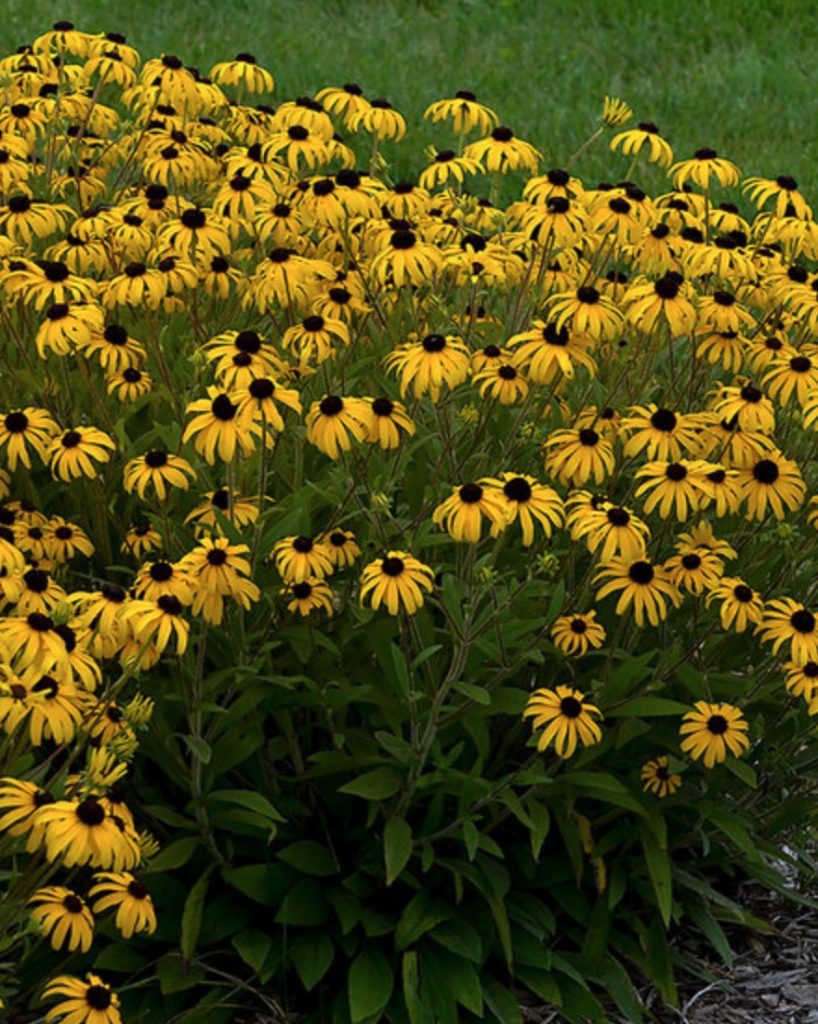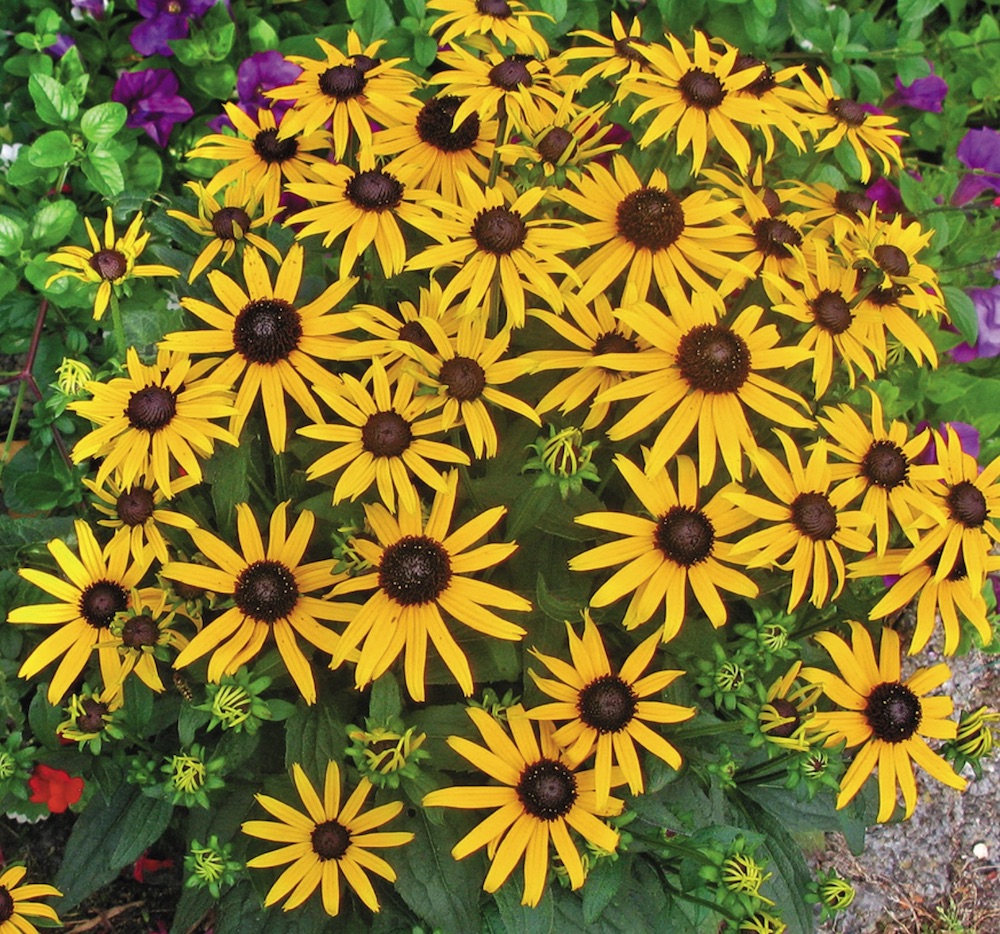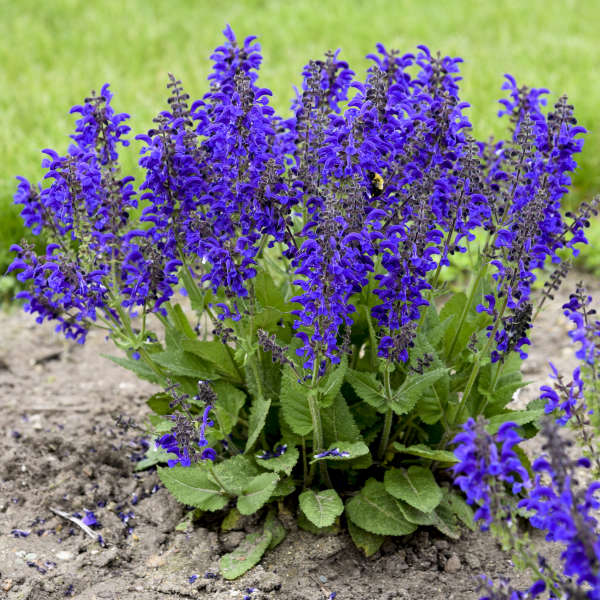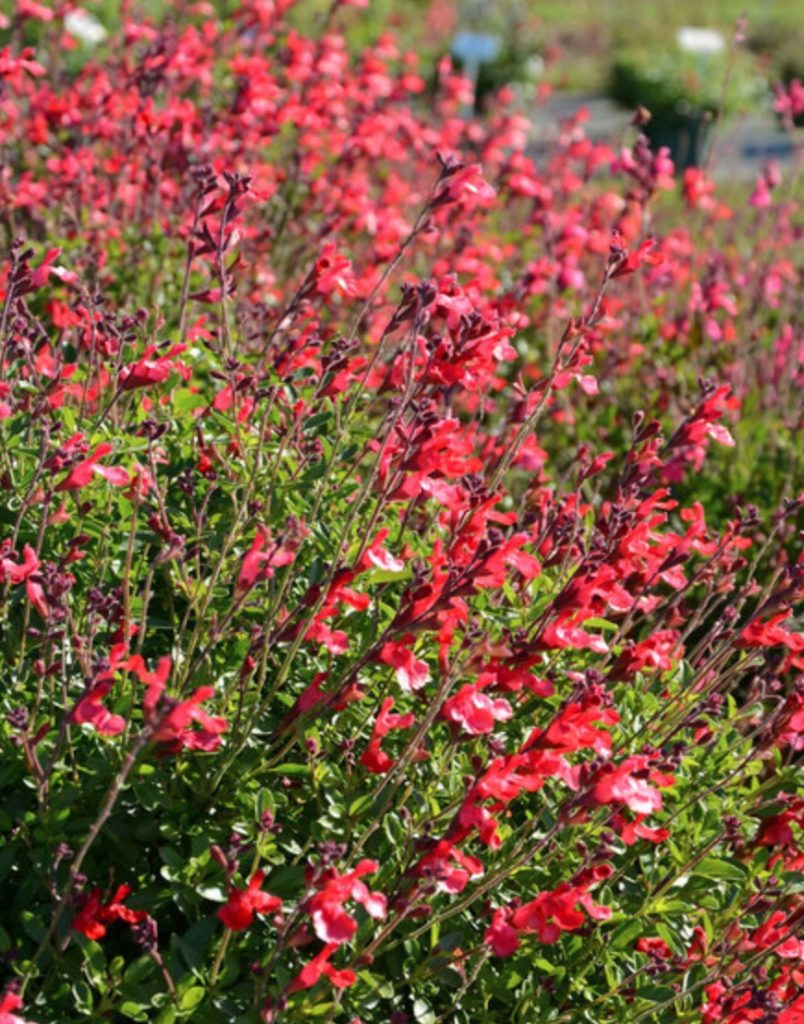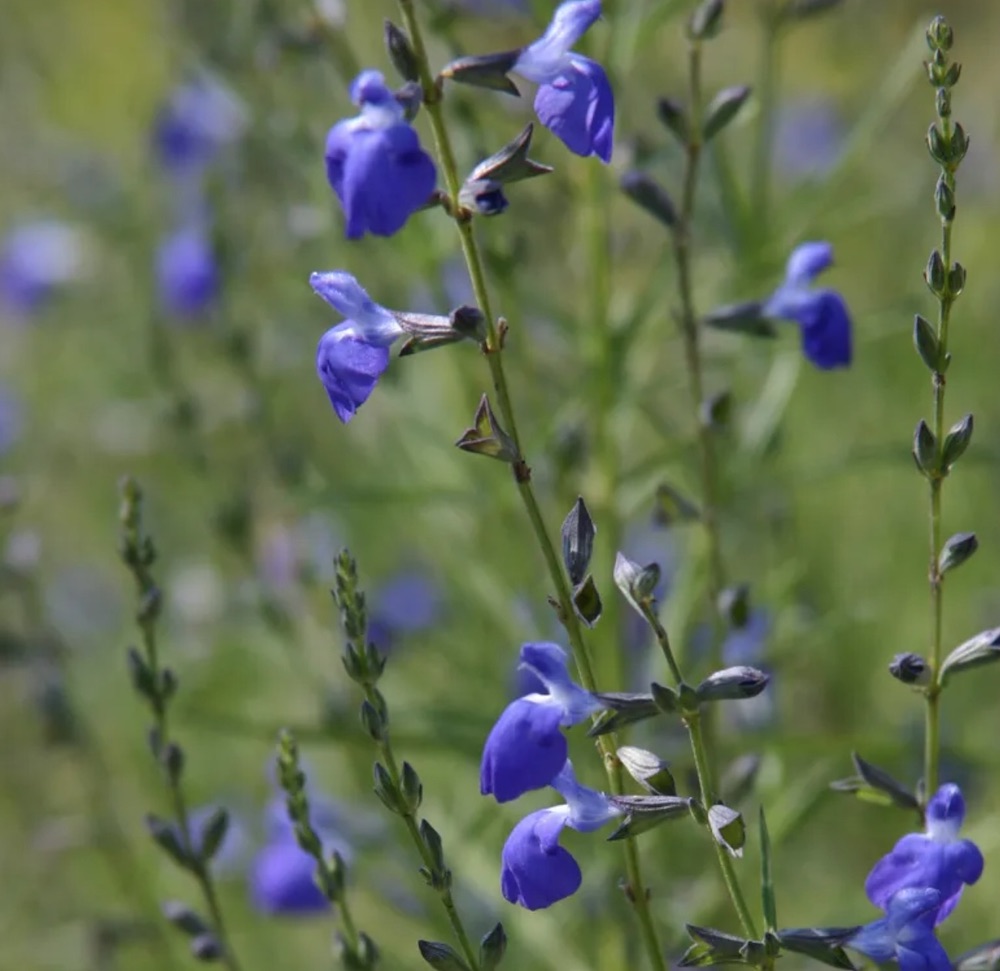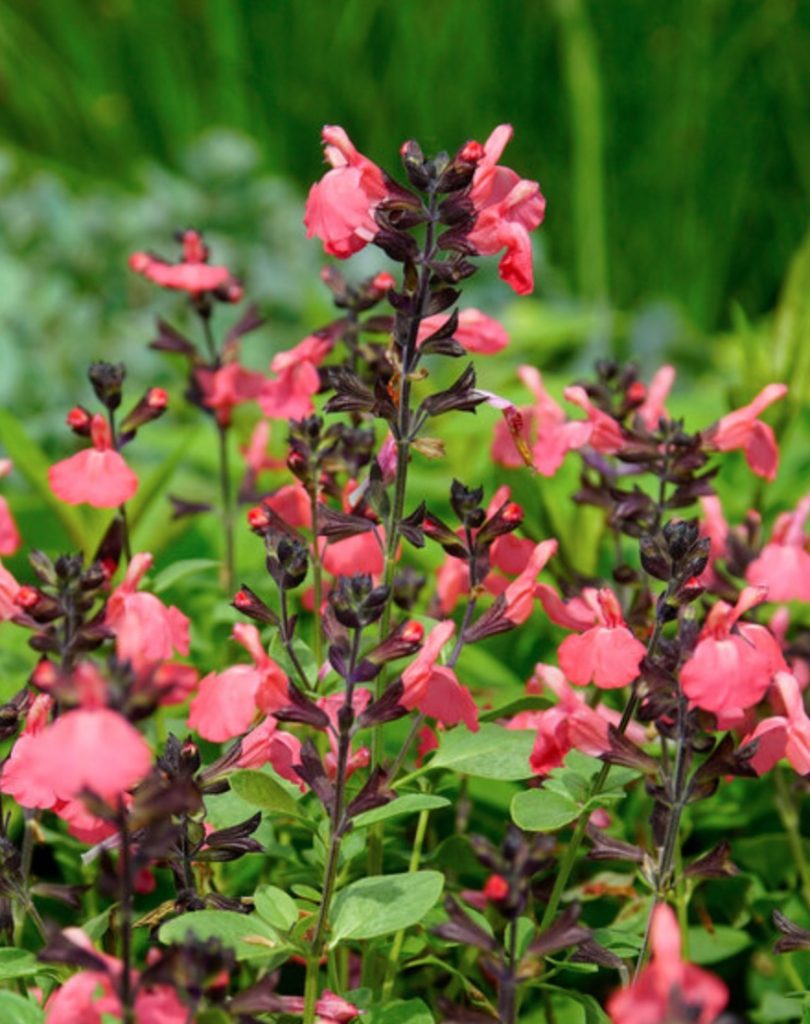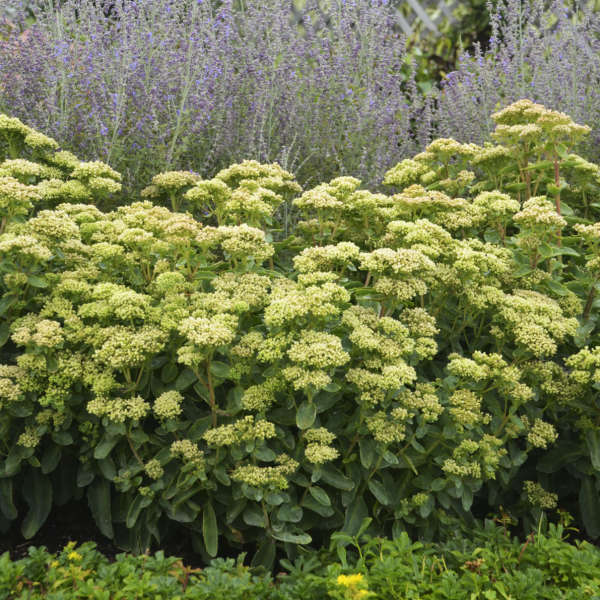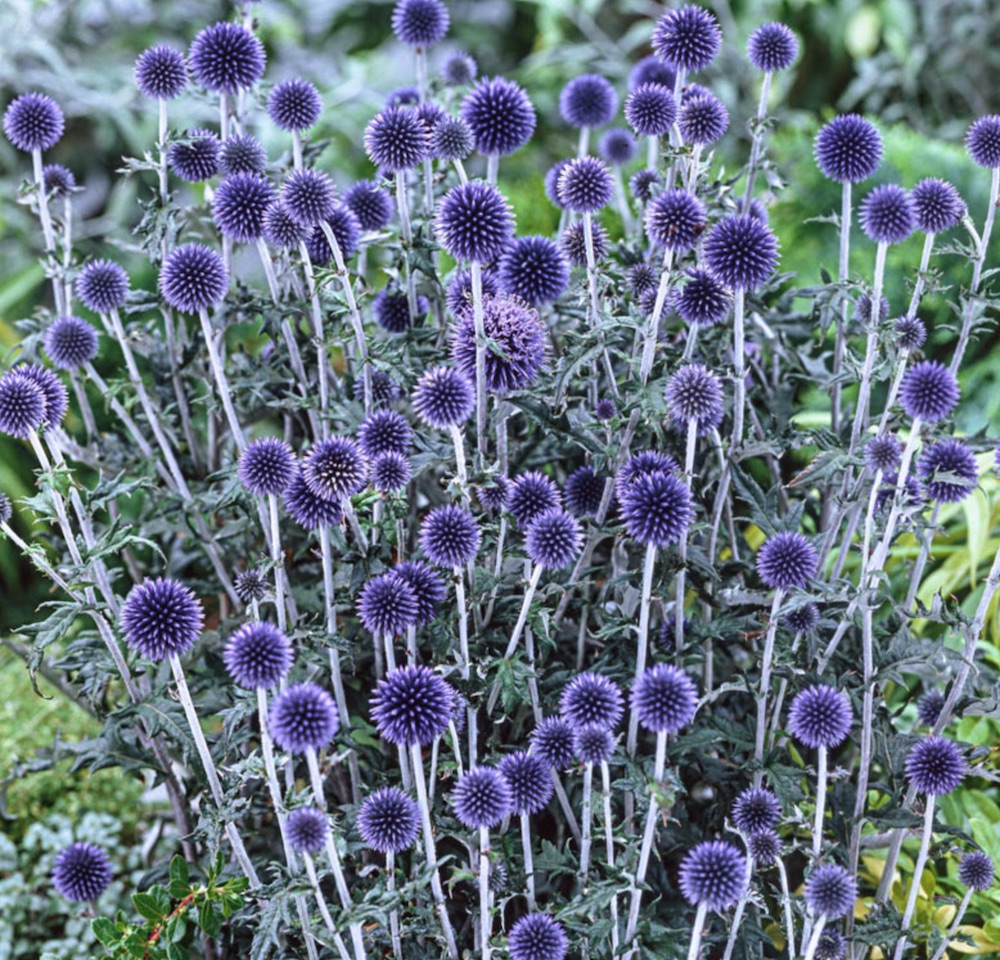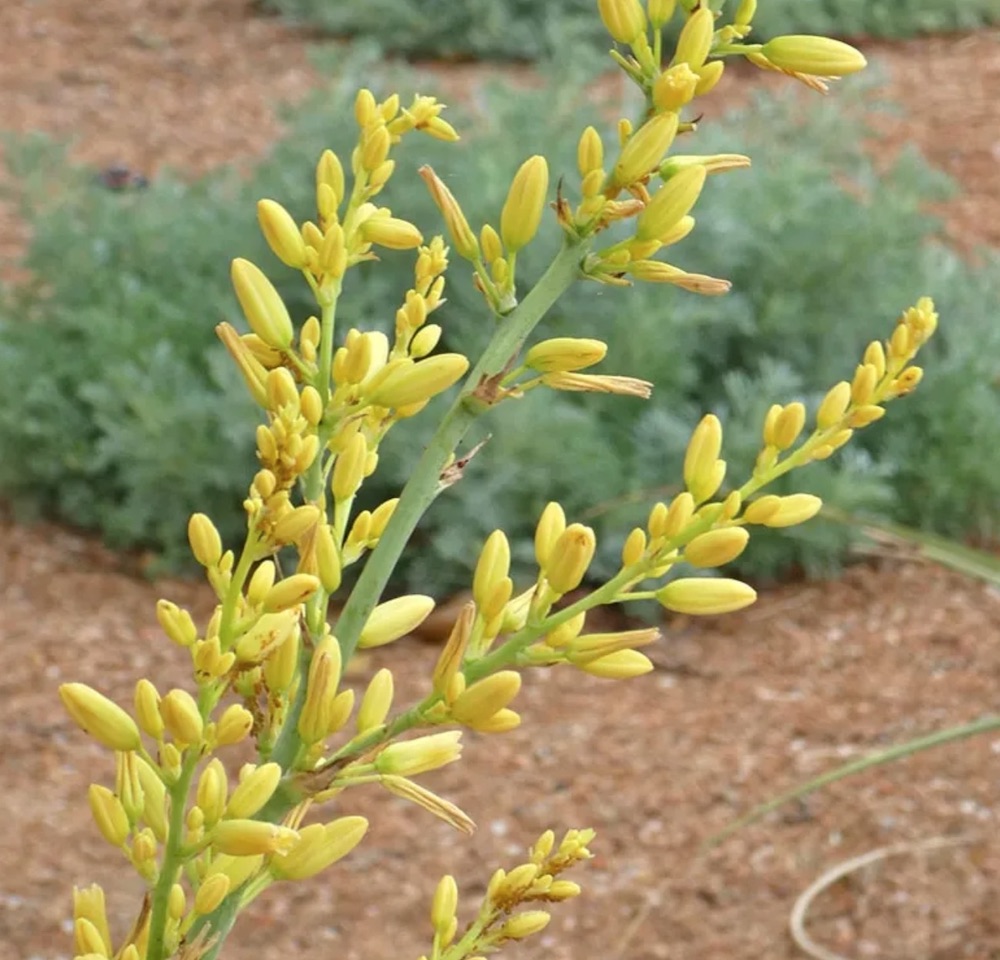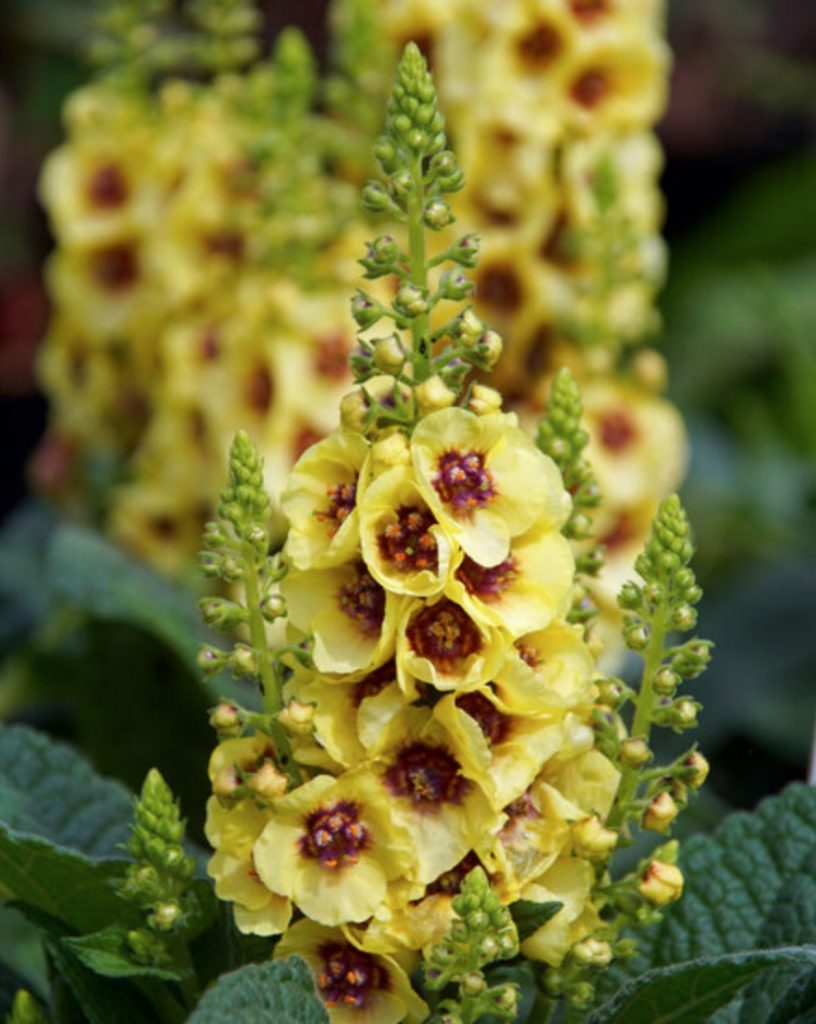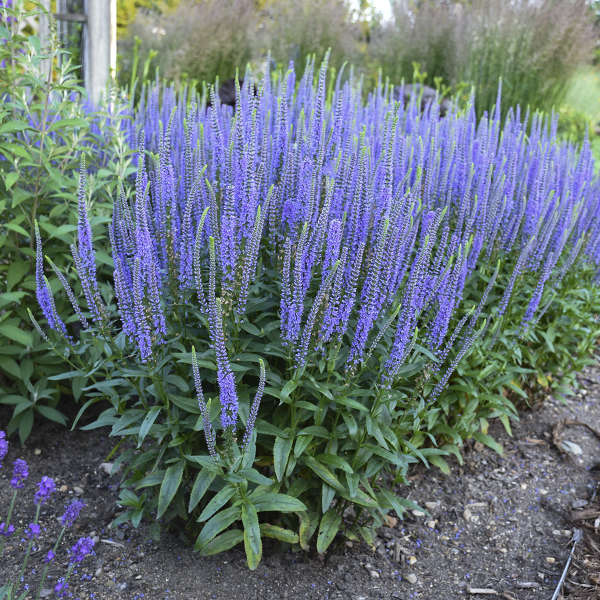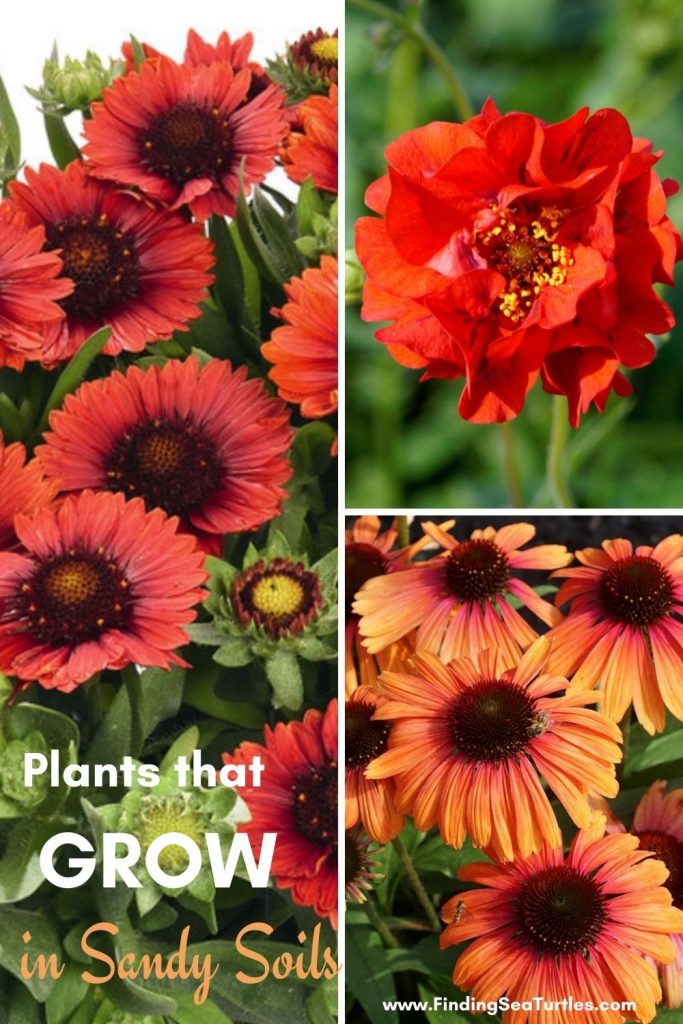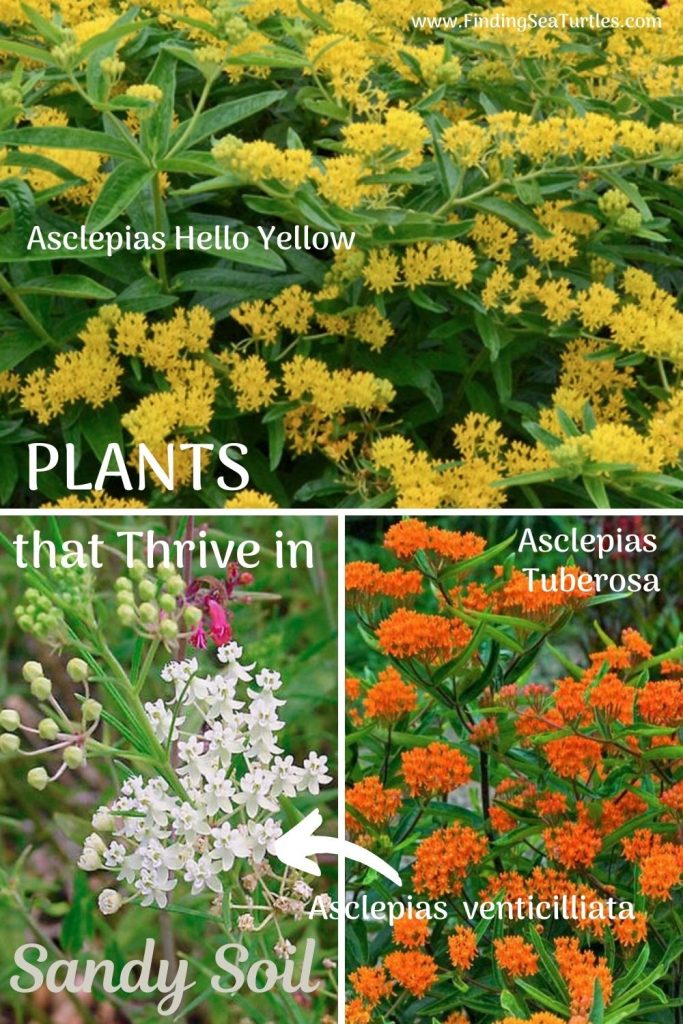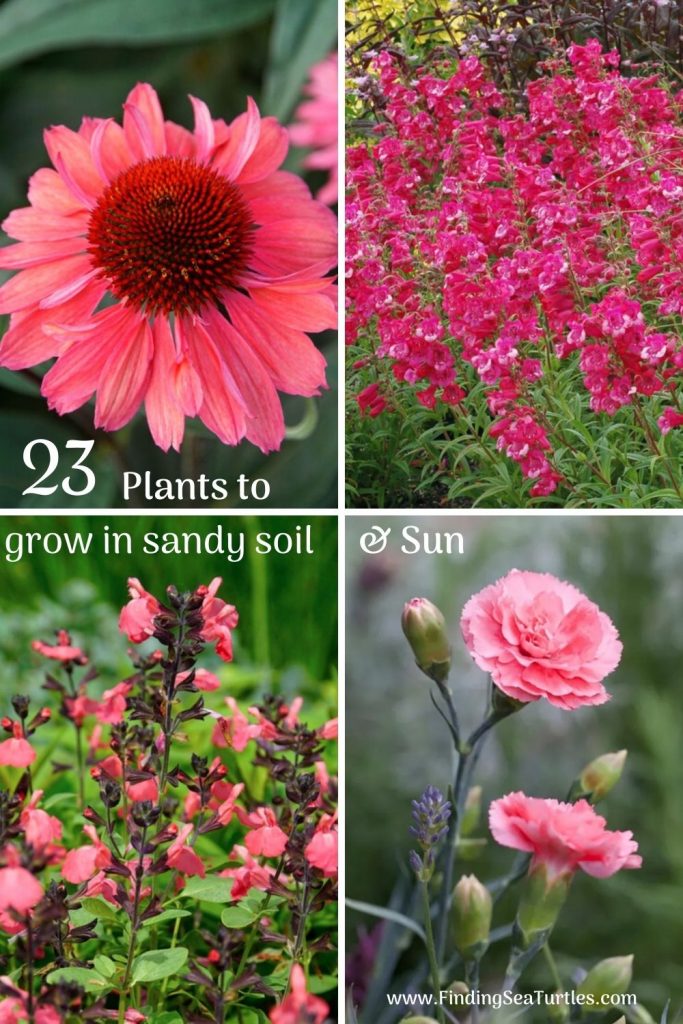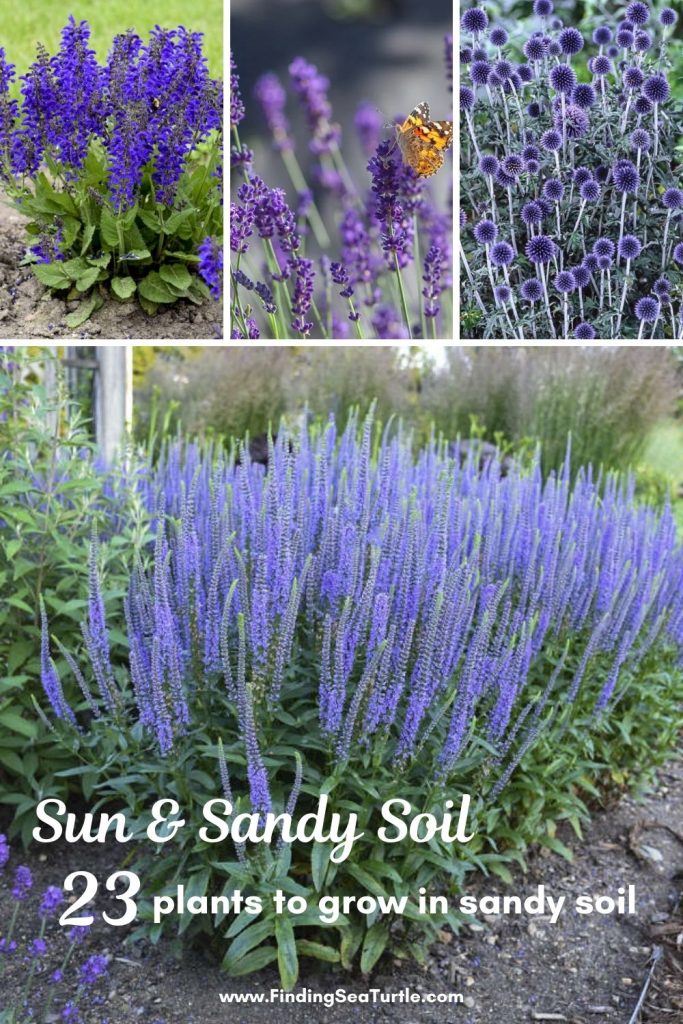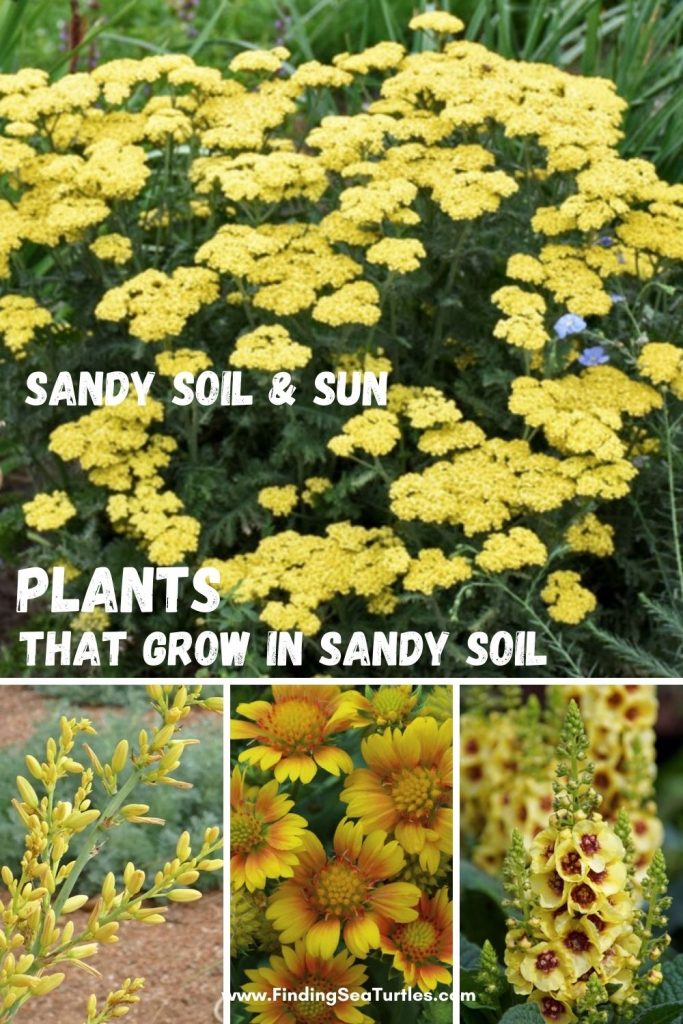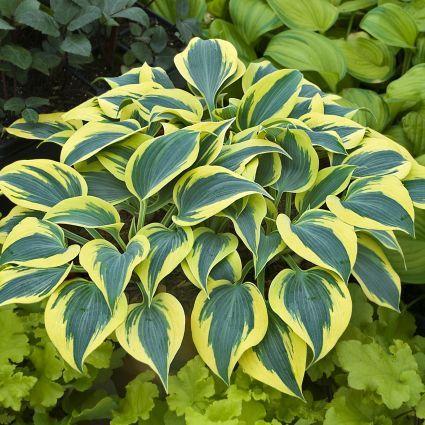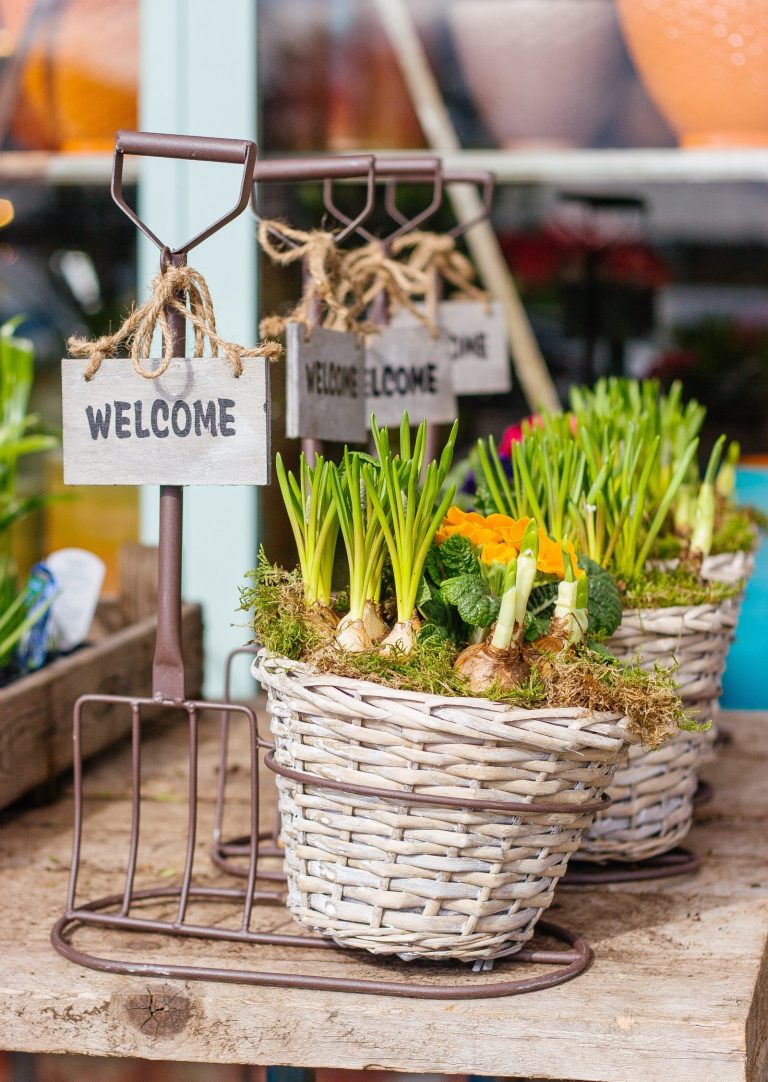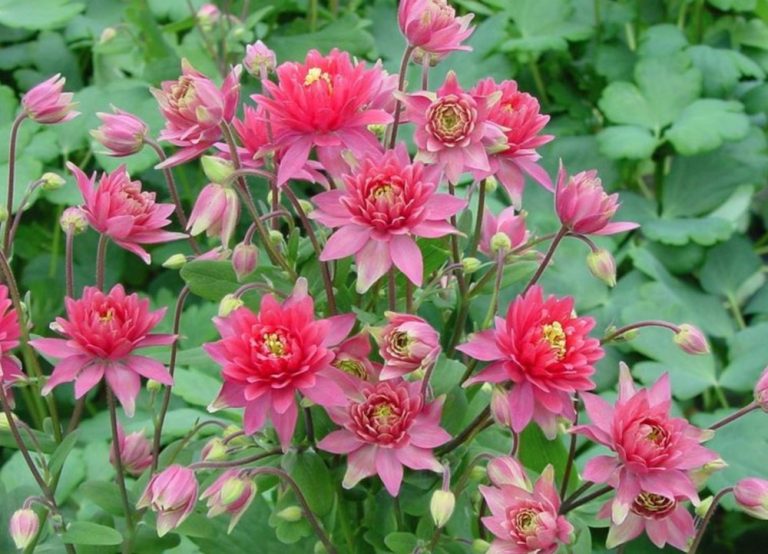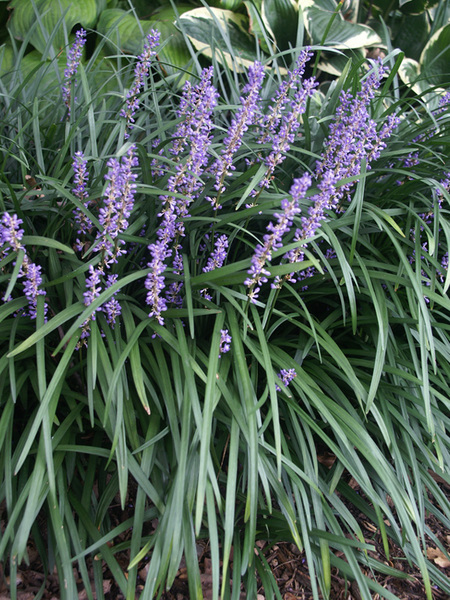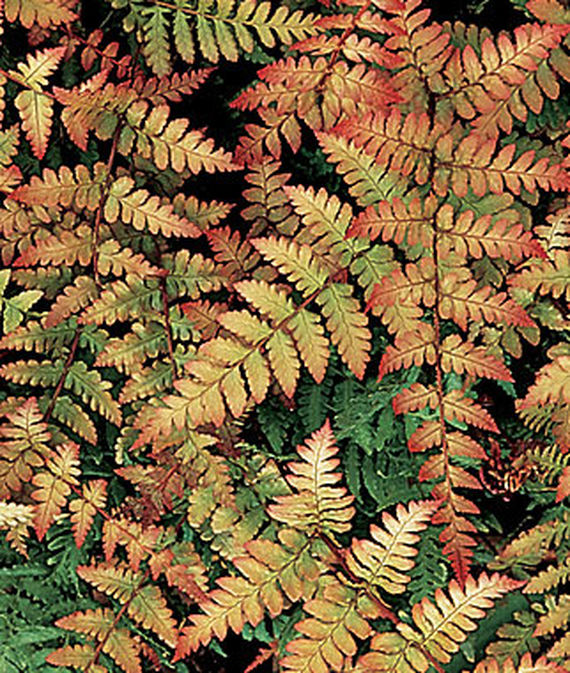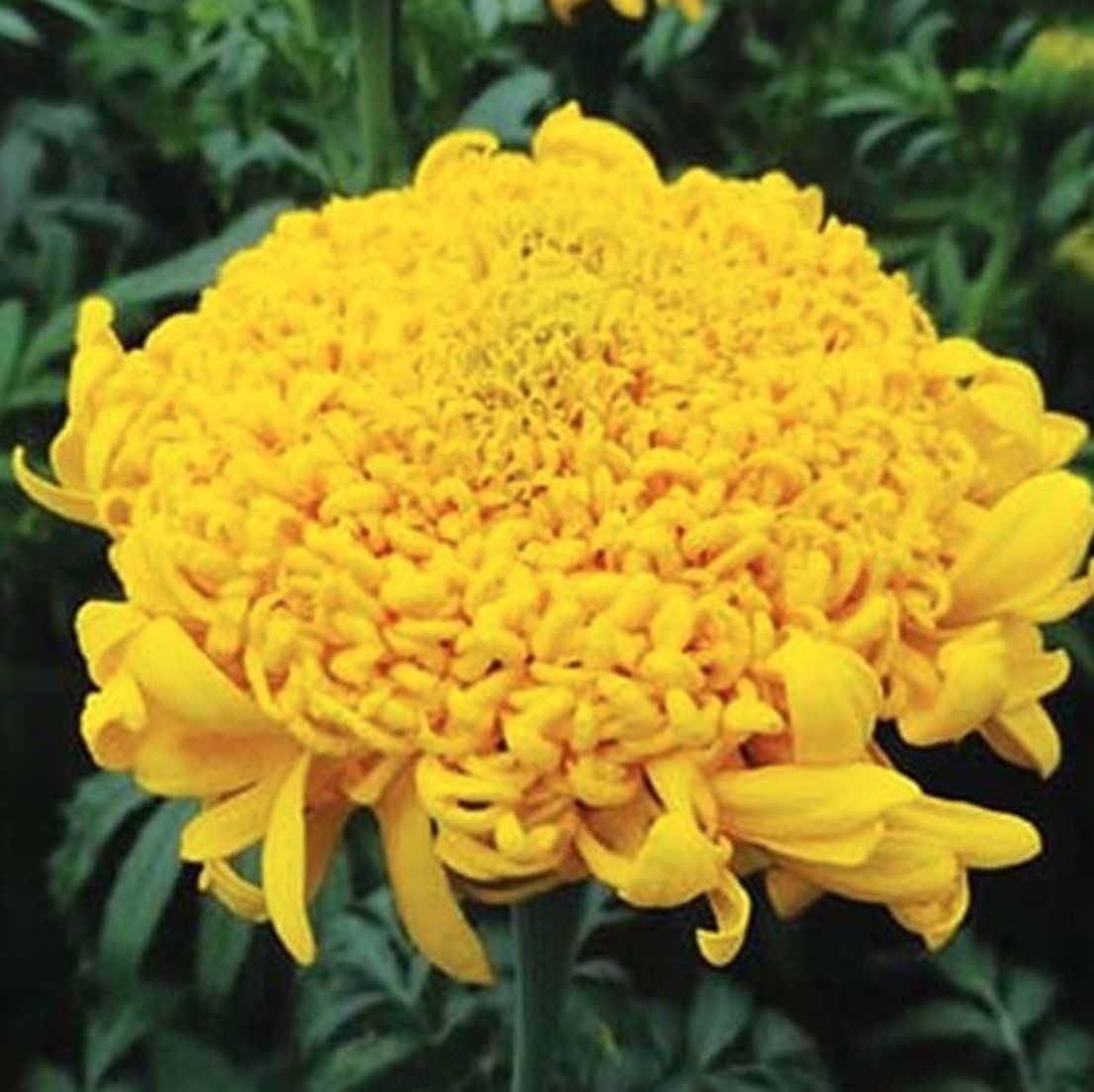23 Amazing Plants that Grow in Sandy Soil and Sun
Plants that grow in sandy soil and Sun. Due to the coarseness of its particles, Sandy soil is unable to retain water or nutrients. You’ll notice after a rainfall or garden watering that water drains very quickly from plants in a sandy soil garden bed. Larger and coarser particles such as those found in sandy soil cannot absorb water. And as water drains from sandy soil, it washes away nutrients from the garden bed. Nutrients plants rely on to grow. As a result of this loss, some garden plants may suffer because they are deprived of water and nutrients. To rectify this soil deficiency, add organic material to sandy soil to improve both water and nutrient retention. However, there are instances when adding organic material is not possible. So the next best option is to select plantings that not only grow in sandy soils but will thrive as well.
Some may think that the choice of plants for a sandy soil garden is limited to succulents and a handful of other plants. However that is not the case. In fact, there are actually quite a few perennials that not only grow but thrive in sandy soils. And we have listed some of those plants in this post. We’ve found plants that can grow in sandy soils. Take a look and let us know what you think.
-
Achillea – Plants that grow in Sandy Soil and Sun
Achillea is also known as yarrow. A native North American plant, Yarrow grows best in full Sun. Blooms are showy flower heads made of tiny flowers above clusters of fern-like foliage. Flowers are yellow, red, pink and in shades between. A favorite of pollinators and butterflies. Foliage is green to grey aromatic deeply cut leaves. Yarrow is tolerant of wind, heat, and drought conditions once established.
Yarrow flower heads make great floral arrangements. Add Yarrow to both fresh cut floral and dried flower arrangements. So perfectly suited for arrangements since the meaning of Yarrow is Everlasting Love!
Achillea Firefly Sunshine
Part of the Firefly Series, Achillea Firefly Sunshine has an upright growth habit. Bright yellow flowers with dark grey green foliage for a balance of textured foliage and bright flowers. A newer variety of yarrow with flatter flower clusters used as landing pads by a variety of pollinators.
- grows in zones 3 to 8
- full Sun
- reaches 28 to 30 inches high and wide
- fragrant blooms in shades of yellow with green shades of foliage
- blooms from early to late Summer
- bee friendly and attracts butterflies
- resistant to deer and rabbits
- tolerates normal, sandy, clay, and acidic soil conditions
- tolerant of salt and drought garden conditions once established
- dried seed heads form once blooming has ended
- plant in garden borders, in mass plantings
- add to cut and dried flower arrangements
Cherries Jubilee Achillea – Plants that Grow in Sandy Soil and Sun
For deep shades of pinks, roses, and violets, the Cherries Jubilee Achillea is an excellent choice of yarrow. Mixed colors of bright reds, rose, and violets cover the Cherries Jubilee Achillea.
- grows in zones 5 to 8
- full Sun
- reaches 24 to 28 inches tall and wide
- flowers are shades of reds, pinks, roses, and violets
- blooms from Spring to Summer
- resistant to deer
- tolerant of drought conditions once established
- plant in garden beds and borders
- add to cut and dried floral arrangements
Achillea Firefly Amethyst
Another member of the Firefly Series, the Achillea Firefly Amethyst is a new variety of yarrow. This variety has an upright growth habit.
- grows in zones 3 to 8
- full Sun to mostly Sunny
- reaches 18 to 22 inches tall
- fragrant lavender pink flowers aging to lighter pink
- blooms early to late Summer
- beneficial for pollinators and attracts butterflies
- suitable for floral arrangements both fresh cut and dried
- resistant to deer and rabbits
- tolerates normal, sandy, clay, and acidic soil conditions
- tolerant of heat, humidity, hot dry sites, and seaside – salt garden conditions
- plant on a slope or bank
Achillea Milly Rock Red Yarrow
Pair the Achillea Milly Rock Red Yarrow with these companion plants. Companion plants for Milly Rock Red include coneflowers, trumpet-shaped daylilies, Kniphofia, and Salvia.
- grows in zones 5 to 9
- full Sun to mostly Sunny
- reaches 10 to 12 inches tall
- fragrant bright red flowers with yellow center accents
- blooms early Summer to early Fall
- beneficial for pollinators and attracts butterflies
- resistant to deer and rabbits
- tolerates normal, sandy, clay, and acidic soil conditions
- tolerant of heat, humidity, hot dry sites, and seaside – salt garden conditions
- plant on a slope or bank
- use in cut and dried floral arrangements
2. Asclepias
The Asclepias tuberosa is commonly known as Butterfly Weed. Whereas the Asclepias verticillata is known as Horsetail Milkweed and simply Milkweed. Butterfly weed and milkweed are a source of nectar for Monarch butterflies as well as a host plant. Monarch butterflies lay their eggs on Asclepias. An essential in every butterfly garden. To attract more butterflies, plant Asclepias in groups in sunny locations in sandy soil.
Asclepias tuberosa Hello Yellow
The leaves of the Asclepias tuberosa Hello Yellow shelter the monarch butterfly eggs until the larvae emerges. After blooms have finished, slender seed pods develop in late Summer. The seed pods open to reveal brown seeds with silky threads.
- native
- grows in zones 3 to 9
- full Sun
- reaches 24 inches tall and wide
- fragrant floral clusters of bright yellow shades with green foliage
- blooms early to late Summer
- bee friendly, beneficial for pollinators and not only attracts butterflies but hummingbirds too!
- resistant to deer
- tolerates normal, sandy, clay, and acidic soil conditions
- tolerant of hot dry sites, and seaside – salt garden conditions
- drought tolerant once established
- suitable for cut floral arrangements
- plant in garden borders, mass plantings,
- provides seasonal interest when the dried seed heads are formed
Asclepias Tuberosa – Plants that Grow in Sandy Soil and Sun
Asclepias Tuberosa after the flowers have finished blooming, green seed pods emerge. Then the seed pods open to release glistening silky parachutes the float away. Awarded the 2017 Perennial Plant Association’s Plant of the Year.
- native to the eastern North America area
- grows in zones 3 to 9
- full Sun
- reaches 18 to 24 inches tall
- flowers are intense tangerine orange with yellow accents
- blooms early to late Summer
- serves as a host plant for Monarch butterflies
- beneficial for pollinators, attracts butterflies and hummingbirds
- resistant to deer
- tolerates normal, sandy, clay, and acidic soil conditions
- tolerant of hot dry site and seaside – salt garden conditions
- suitable for cut floral arrangements
- develops dried seed heads at the end of the flowering season
Asclepias verticillata – Plants that Grow in Sandy Soil and Sun
The Asclepias verticillata is also known as Horsetail Milkweed and Milkweed. A nectar source for Monarch butterflies and host plants for their eggs. Best gardening conditions for milkweed are sunny garden locations with sandy soil.
- native
- grows in zones 4 to 8
- full Sun
- reaches 12 to 24 inches tall
- fragrant white flower clusters with grey green needle-like foliage
- blooms early to late Summer
- beneficial for pollinators, attracts butterflies and hummingbirds
- resistant to deer
- use in cut floral arrangements
- tolerates normal, clay, sandy, and acidic soil conditions
- tolerant of hot dry sites and wet site garden conditions
3. Coreopsis – Plants that grow in Sandy Soil and Sun
The Coreopis plant is known as tickseed. Coreopsis grandiflora is commonly called large-flowered Tickseed. A native of the southeastern US, these bright flowers attract butterflies and birds. Create beautiful floral arrangements with Coreopsis fresh flowers.
Coreopsis grandiflora Moonswirl
The low maintenance colorful Coreopsis grandiflora Moonswirl blooms throughout the Summer season. Bright and cheerful color for a Sunny garden.
- grows in zones 4 to 9
- full Sun
- reaches 18 to 24 inches high
- flowers are deep golden yellow flowers similar to marigolds
- blooms late Spring to late Summer
- beneficial for pollinators and attracts butterflies
- resistant to deer
- tolerates normal and sandy soil conditions
- tolerant of humidity and hot dry site garden conditions
- use in cut floral arrangements
Coreopsis Big Bang™ Star Cluster
A cold hardy perennial, the Coreopsis Big Bang™ Star Cluster can be planted next Roses as a companion. Developed by breeder Darrell Probst. With a compact growing habit, blooms all Summer long.
- native
- grows in zones 5 to 9
- full Sun
- reaches 18 to 24 inches tall and wide
- white blooms with purple accents foliage is medium green
- blooms early Summer to early Fall
- attracts butterflies
- resistant to deer, disease, and pests
- tolerates normal, clay, loamy, poor, and sandy soil conditions
- tolerant of heat, humidity, and drought conditions once established
- plant in containers
UpTick Gold & Bronze Coreopsis
With flower performance of an annual, the UpTick Gold & Bronze Coreopsis flowers on tidy plants. With a mounding growth habit, and low maintenance.
- grows in zones 5 to 9
- full Sun
- reaches 12 to 14 inches tall and wide
- blooms Spring and Summer
- plant in garden beds and borders
Coreopsis hybrida Super Star – Plants that Grow in Sandy Soil and Sun
A compact perennial with a mounding growth habit, the Coreopsis hybrida Super Star has many uses. Plant on a Sunny bank or in a garden border. As a companion plant, Coreopsis Super Star pairs well with Echinacea (Coneflowers) and Campanula.
- grows in zones 5 to 9
- full Sun
- reaches 14 to 16 inches tall
- flowers are yellow with crimson-red centers
- blooms from late Spring to early Fall
- beneficial for pollinators, bees, and attracts butterflies
- resistant to deer
- tolerates normal and sandy soil conditions
- tolerant of humidity and hot dry site garden conditions
- tolerates road salt garden conditions
- add to cut floral arrangements
- grow in containers
4. Dianthus – Plants that Grow in Sandy Soil and Sun
Also known as Pinks and Carnations, Dianthus are garden cottage classics. Dianthus are available in a variety of colors. Many are fragrant and make lovely bouquets. Many varieties have blue-green or blue frosted foliage.
Dianthus Pink Pompom
The Dianthus Pink Pompom is part of the Mountain Frost™ Series. This particular series, the Mountain Frost are bred for ultimate landscape performance. A versatile and compact perennial that butterflies adore.
- grows in zones 5 to 9
- full Sun
- reaches 6 to 8 inches tall
- fragrant rose pink double flowers with rose accents
- blooms late Spring to early Fall
- attracts butterflies
- resistant to deer
- tolerant of normal and sandy soil conditions
- grow in containers or in a cut flower garden
- use in a cut floral arrangement
Dianthus Kahori® Pink
As an alternative to traditional Dianthus, the Kahori® Pink Dianthus has star-shaped flowers rather than the fuller size. The sweetly-scented star shaped flowers are bright pink. The name Kahori means fragrance in Japanese and as you would expect, they live up to their namesake.
- grows in zones 3 to 9
- full Sun
- reaches 6 to 8 inches tall
- fragrant pink flower color with evergreen foliage
- blooms from late Spring to late Summer
- tolerant of normal and sandy soil conditions
- attracts butterflies
- resistant to deer
- grow in containers and in a cutting garden
- use in cut floral arrangements
Scent First® Romance Garden Pinks
With a compact growth habit, the Scent First® Romance Garden Pinks has blue-green mounds of foliage. Ideal for a garden border edge.
- grows in zones 5 to 9
- full Sun
- reaches 6 to 10 inches tall and wide
- blooms late Spring to mid Summer
- spicy sweet fragrant salmon pink flowers with spiky silver-blue foliage
- attracts butterflies
- resistant to deer
- tolerant of sandy, average, and drought – dry soil conditions once established
- tolerates dry site garden conditions
- plant in a cut flower garden or in containers
- use in rock gardens
5. Echinacea
A popular Summer blooming native flower, Echinacea is commonly known as a coneflower. They are known for growing in clay soil, however a few varieties do grow in sandy soil. We listed a few of the varieties that don’t mind sandy soil. Coneflowers are loved by butterflies and birds love the seeds from the cones of the flower.
Echinacea Coral Craze – Plants that Grow in Sandy Soil and Sun
Part of the Eye-Catcher™ Series coneflower, the Echinacea Coral Craze has bold-hued blooms. Flowers mature to lavender pink.
- cold hardy native
- grows in zones 4 to 8
- full Sun to mostly Sunny
- reaches 26 to 28 inches tall
- vibrant coral-pink blooms roll open from tubular petals then downward to a full skirt
- blooms from early to late Summer
- beneficial for pollinators, attracts butterflies and birds
- resistant to deer tolerates normal, and sandy soil conditions
- tolerant of humidity, hot dry sites garden conditions
- add to a cut floral bouquet
- grow in containers
- provides for winter interest in the garden
Echinacea Butterfly™ Rainbow Marcella
Sunrise colored blooms, the Echinacea Butterfly™ Rainbow Marcella is a compact echinacea. Blooms are bicolored and change as they mature. Flowers open tangerine orange then transform into a blushing lavender.
- cold hardy native
- grows in zones 4 to 9
- full Sun
- reaches 16 to 18 inches tall with a spread of up to 24 inches wide
- flowers are a blend of dark orange, dark yellow, lavender, multi-color with medium green foliage
- blooms from mid Summer to mid Fall
- attracts butterflies and birds
- resistant to deer and rabbits, plus disease, and pests
- tolerates normal, loamy, and sandy soil conditions
- tolerant of heat, humidity, and garden conditions
- tolerates drought conditions once established
- add to cut floral bouquets
- plant in garden borders and beds
- grow in containers
Echinacea Cone-fections™ Raspberry Truffle
A part of the Cone-fection series, the Echinacea Cone-fections™ Raspberry Truffle have large, double-flowered varieties. A compact perennial with mahogany stems against dark green foliage. Shades of carmine, rose, and pink flowers with a chocolate-brown center.
- cold hardy native
- grows in zones 4 to 9
- full Sun
- reaches about 28 to 32 inches high in bloom, and 20 to 24 inches wide double blooms flowers are apricot, multi-color, pink, rose blooms with dark green foliage
- attracts butterflies
- resistant to deer, disease, and pests
- tolerates normal, sandy, clay, loamy, and poor soil conditions
- tolerant of heat, humidity, and drought garden conditions once established plant in garden borders, containers
- add to cut floral bouquets
6. Gaillardia
The Gaillardia flower is called a blanket flower. Blanket Flower refers to the brightly patterned Native American blankets. A butterfly favorite, the Blanket Flower plants bloom over the Summer months. Heat and drought tolerant once they are established in the garden.
Gaillardia SpinTop Red – Plants that Grow in Sandy Soil and Sun
The Gaillardia SpinTop Red is part of the SpinTop Series. A compact plant that pairs well with the Geranium perennials.
- cold hardy native
- grows in zones 3 to 9
- full Sun to mostly Sunny
- reaches 8 to 10 inches tall
- large red-orange flower heads with red accents
- blooms from late Spring to late Summer
- beneficial for pollinators
- attracts butterflies
- resistant to deer
- tolerates normal, and sandy soil conditions
- tolerant of humidity, and hot dry site garden conditions
- tolerates drought conditions once established
- add to cut floral arrangements
Gaillardia aristata Arizona Apricot
A compact plant, the Gaillardia aristata Arizona Apricot has apricot flowers with yellow tips. The center is darker orange.
- cold hardy native
- grow in zones 3 to 10
- full Sun reaches 12 inches tall and wide
- gold orange shades with peach shades with green foliage
- blooms from early Summer to early Fall
- bee friendly and attracts butterflies
- resistant to deer
- tolerates normal, sandy, loamy, clay, and poor soil conditions
- tolerant of salt garden conditions
- tolerates drought conditions once established
- excellent for dried floral arrangements
- grow in garden borders, mass planting, and in containers
- after blooming period dried seed heads develop
Gaillardia aristata Arizona Red Shades
Gaillardia aristata Arizona Red Shades is heat tolerant. Arizona Red Shades thrive in poorer soils.
- cold hardy native
- grows in zones 3 to 10
- full Sun
- reaches 10 to 12 inches tall with a 12 inch spread
- flowers are crimson red shades with green foliage.
- blooms from early Summer to early Fall
- bee friendly and attracts butterflies
- resistant to deer
- tolerates normal, sandy, and loamy soil conditions
- tolerant of salt garden conditions
- tolerates drought conditions once established
- use in cut and dried floral arrangements.
- plant in garden borders, containers, and mass planting
- after blooms are done, dried seed heads form
7. Geum – Plants that Grow in Sandy Soil and Sun
The Geum plants are known as Avens. In hotter Summer climates, Geum prefers morning Sun with afternoon shade.
Geum Totally Tangerine
The Geum Totally Tangerine is a compact perennial with a mounding growth habit.
- cold hardy
- grows in zones 4 to 7
- part shade and part Sun to full Sun
- reaches 30 inches tall with a spread of 18 inches wide
- bright apricot to tangerine orange shades with deep green foliage
- blooms from late Spring to midSummer
- bee friendly attracts butterflies
- resistant to deer and rabbit
- tolerates normal, sandy, and clay soil conditions
- use in cut floral arrangements
- grow in contains plant in garden borders
Geum chiloense Red Dragon
For fiery color to the garden, plant the Geum chiloense Red Dragon. Red Dragon adds shades of red to orange double blossoms to the landscape. The red dragon is a popular celebratory flower since it is a symbol of power, strength, happiness, as well as good fortune.
- grows in zones 5 to 9
- part shade and part Sun to full Sun
- reaches 16 to 20 inches tall with a spread of 12 to 18 inches wide.
- ruffled double flowers are ruffled scarlet-red with orange accents
- blooms from early to late Summer
- attracts butterflies
- resistant to deer and rabbits
- tolerates normal, sandy, and clay soil conditions
- add to cut floral bouquets
8. Hummelo Betony
The Hummelo Betony has a dense mounding growth habit. A versatile plant that can be used in many garden settings.
- grows in zones 4 to 8
- reaches 18 to 20 inches tall with a spread of 12 to 18 inches wide
- part shade and part Sun to full Sun
- flowers are purple
- blooms early to mid summer
- resistant to deer
- tolerates acidic, clay, loamy and sandy soil garden conditions
9. Eupatorium – Plants that Grow in Sandy Soil and Sun
The Eupatorium is also known as Joe Pye Weed, Boneset, and Eutrochium. A large perennial that adds stature to the garden. This brings late summer color to the garden. So attractive to butterflies. Eupatorium was recently reclassified to Eutrochium.
Chocolate Joe Pye Weed – Plants that Grow in Sandy Soil and Sun
A compact variety of Joe Pye Weed, the Chocolate Joe Pye Weed has bronze-purple leaves and stems. Fragrant and loved by butterflies.
- native
- grows in zones 4 to 8
- part shade and part Sun to full Sun
- reaches 36 to 48 inches tall and 24 to 36 inches wide
- fragrant white flowers with dark, bronze-purple leaves and stems
- blooms from late Summer to Fall
- attracts butterflies
- resistant to deer and rabbits
- tolerates sandy, loamy, clay, and drought soil conditions once established add to cut floral bouquets plant in containers
Baby Joe Joe Pye Weed
Another compact form, Baby Joe Joe Pye Weed has flat topped heads of mauve-purple blooms. Suitable for small space gardens and rain gardens.
- grows in zones 4 to 8
- full Sun
- reaches 36 to 48 inches tall by 24 to 36 wide
- flowers are flat topped heads of mauve-purple blooms
- blooms from midSummer to early Fall
- bee friendly and attracts butterflies
- resistant to deer
- tolerant of sandy, clay, and average soil conditions
- use in cut fresh flower arrangements
Red Dwarf Joe Pye Weed
Named after its burgundy-red stems, the Red Dwarf Joe Pye Weed has flat topped flower clusters. Especially noticeable in the garden during the Winter season.
- European selection of the American native Joe Pye weed
- grows in zones 4 to 8
- morning Sun and afternoon shade to full Sun
- reaches 36 inches tall by 24 to 30 inches wide
- flowers are large pink flower clusters on burgundy-red stems
- blooms late Summer to early Fall
- attracts butterflies and bees
- resistant to deer and rabbits
- tolerant of sandy, clay, and average soil conditions
- use in both cut fresh and dried floral arrangements
10. Hyssop – Plants that Grow in Sandy Soil and Sun
Another name for Hyssop is Agastache. The Hyssop plants do well in a garden bed and container as well. The seeds are a favorite of Goldfinches.
Little Adder Hyssop
A compact variety, the Little Adder Hyssop attracts plenty of pollinators. Blooms are purple floral spikes.
- grows in zones 3 to 8
- full Sun
- reaches 15 to 18 inches tall and 18 to 24 inches wide
- fragrant purple flowers that have 6 to 8 inches of flower plumes with fragrant green foliage
- blooms early Summer to Fall
- bee friendly, attracts butterflies and hummingbirds
- resistant to deer and rabbits
- tolerates sandy and drought dry soil conditions once plant is established
- use in cut floral bouquets plant in containers
Lavender Hyssop
Lightly fragrant scented, the Lavender Hyssop has an anise scent to the plant. Prepare tea, jellies as well as other foods using Lavender Hyssop.
- native
- grows in zones 4 to 8
- full Sun
- reaches 24 to 48 inches high with a spread of 18 to 36 inches wide
- fragrant flowers of anise
- blooms mid to late Summer
- attracts bees, butterflies, and hummingbirds
- resistant of deer
- drought tolerant once established
- grows well in clay, dry, loamy and sandy soil conditions
Agastache aurantiaca Tango – Plants that Grow in Sandy Soil and Sun
The Agastache aurantiaca Tango has a compact growth habit. Produces blooms of trumpet shape in hot red orange colors. As companion plants, grow Salvia or Lavender next to Tango.
- grows in zones 5 to 10
- full Sun to mostly Sunny
- reaches 12 to 18 inches tall
- fragrant red orange trumpet shaped blooms
- blooms early Summer to mid Fall.
- beneficial for pollinators, attracts butterflies and hummingbirds
- resistant to deer and rabbits
- tolerates normal and sandy soil conditions
- tolerant of hot dry site
- plant in containers
11. Kniphofia
Known as the Red Hot Poker Plant, Torch Lily, and Tritoma, the Kniphofia a Sun loving perennial. A burst of color for hot and dry climates.
Kniphofia Poco Citron
As part of the Poco™ Series, the Kniphofia Poco Citron has short, dense floral spikes. Spikes emerge a creamy-lime green then lemon yellow to deeper canary yellow. Finally turning a light butter creme. As an alternative to mounding perennials, the Poco Citron brings a vertical accent above clumps of arching blue-green foliage.
- grows in zones 6 to 9
- full Sun to mostly Sunny
- reaches 14 to 20 inches tall
- blooms are yellow with white accent
- blooms midSummer to mid Fall
- attracts butterflies and hummingbirds
- resistant to deer and rabbit
- tolerates normal, acidic, and sandy soil conditions
- tolerant of humidity, hot dry site seaside – salt garden conditions
- use in cut floral arrangements
- plant in containers
Fire Dance Red Hot Poker
Native to the South African Drakensberg Mountains, the Fire Dance Red Hot Poker is cold hardy. A compact plant so suitable for a small space garden.
- grows in zones 4 to 8
- full Sun
- reaches 18 inches tall by 15 to 18 inches wide
- blooms are coral-red and orange yellow bi-color flower spikes
- blooms in the Summer
- attracts butterflies and hummingbirds
- resistant to deer and rabbits
- tolerant of sandy, clay, and average soil conditions
- drought tolerant once established – xeric
- add to a Fire Scape garden or rock garden
Kniphofia Joker’s Wild
To expand your garden vertically, add the Kniphofia Joker’s Wild for a strong vertical accent. Discover these saturated orange hues with wispy yellow stamens above clumps of arching blue green foliage.
- grows in zones 6 to 9
- full Sun to mostly Sunny
- reaches 36 to 42 inches tall with a spread of 24 to 30 inches wide
- flower blooms are flamboyant orange torches with wispy yellow stamens
- blooms early to late Summer
- tolerates normal, acidic, and sandy soil conditions
- beneficial for pollinators, attracts butterflies and hummingbirds
- resistant to deer and rabbit
- use in a cut floral arrangement
- tolerant of humidity, hot dry site seaside – salt garden conditions
12. Lavender – Plants that Grow in Sandy Soil and Sun
Also known as Lavandula. Lavender plants have graceful purple-toned blossoms above gray-green scented foliage. Summer blooming flowers for drying as well as fragrant bouquets. A member of the herb family frequently used for soaps, perfumes and potpourri.
SuperBlue English Lavender
A compact variety, the SuperBlue English Lavender is suitable for edging along walkways. Equally pleasing in patio containers.
- grows in zones 5 to 8
- full Sun reaches 10 to 12 inches tall and wide
- fragrant purple blooms with fragrant gray-green foliage
- blooms early to late Summer
- bee friendly, attracts butterflies
- resistant to deer and rabbits
- use in cut fresh and dried floral arrangements
- plant in rock gardens and small spaces
- tolerates sandy, loamy, and drought dry soil conditions
- tolerant of humidity, dry sites, and salt garden conditions
Lavandula x intermedia Phenomenal
Compact and dense, Lavandula Phenomenal has purple spikes over a gray green mound. Commonly used in bouquets and as dried floral potpourri. Easily paired with golden yellow Yarrow as a companion.
- grows in zones 5 to 10
- full Sun
- reaches 24 to 36 inches tall
- fragrant lavender blooms blooms
- early Summer to early Fall
- beneficial for pollinators, attracts butterflies
- resistant to deer
- use in cut flower arrangements
- tolerates normal and sandy soil conditions
- tolerant to heat, humidity, and hot dry site garden conditions
- plant on a slope or bank and as a hedge
Lavandula angustifolia Ellagance Pink – Plants that Grow in Sandy Soil and Sun
A newer addition to the Ellagance Series, the Lavandula angustifolia Ellagance Pink is a fragrant compact lavender. As a companion to the Ellagance Pink, plant purple blue Lavenders for a colorful fragrant display. Grow near walkways or by entryways for an aromatic scent.
- grows in zones 5 to 9
- full Sun
- reaches 10 inches tall
- fragrant soft pink blooms over bushy silver green foliage
- blooms early Summer to early Fall
- beneficial for pollinators, attracts bees and butterflies
- resistant deer and rabbits
- use in cut flower arrangements
- tolerant of normal and sandy soil conditions
- tolerant of hot dry site gardens
- plant in a slope or bank and as a hedge
- grow in containers
13. Linum
The Linum is also known as Blue Flax. Blue flax has blue-green needlelike leaves with satiny sky blue flowers. Blooms late Spring through midSummer season. After blooms have finished, small round seed heads form.
Appar Blue Flax
A dwarf form of Blue Flax, the Appar Blue Flax or Linum has blue flowers with wiry stems. Blooms first appear in late Spring.
- grows in zones 3 to 9
- full Sun
- reaches 18 inches tall and wide
- Bright blue flowers
- blooms from early to mid summer
- resistant to deer and rabbits
- tolerant of sandy, clay, and average soil conditions
- tolerates drought conditions once established – water wise
- plant in a rock garden
14. Lychnis
A hardy, old fashioned plant, the Lychnis produces flowers that attract butterflies and hummingbirds.
Lychnis flos-cuculi Petite Jenny
The Lychnis flos-cuculi Petite Jenny is native to Europe and Asia. Found growing along roads and the countryside. Sometimes called Ragged Robin.
- grows in zones 5 to 8
- full Sun to mostly Sunny
- reaches 12 to 14 inches tall
- flowers are double pink with lavender accents
- blooms from early Summer to early Fall
- beneficial for pollinators, attracts bees, butterflies, and hummingbirds
- resistant to deer
- tolerant of normal, sandy, and acidic soil conditions
- use in a cut floral arrangement
Lychnis coronaria Atrosanguinea Rose Campion
Summer blooming, the Lychnis coronaria Atrosanguinea Rose Campion has bright colored magenta flowers. Use in a rock garden or a garden border.
- grows in zones 3 to 8
- full Sun
- reaching 2 to 3 feet tall
- flowers are deep magenta, rose red color with silver-wooly leaves
- blooms from early to late Summer
- attracts butterflies and hummingbirds
- resistant to deer
- add in a cut floral bouquet
- tolerates normal, sandy, and acidic soil conditions
- tolerant of hot dry site garden conditions
15. Obedient Plant
Spikes of blooms over the midSummer season, the Obedient Plant has flower buds that open from the bottom to the top. Good selection for colder zones.
Crystal Peak White Obedient Plant – Plants that Grow in Sandy Soil and Sun
With a compact growth habit, the Crystal Peak White Obedient Plant blooms in midSummer. Bright white flower spikes attract pollinators. Good choice for rain gardens.
- native
- grows in zones 3 to 9 full Sun
- reaches 16 to 18 inches tall white flowers
- blooms in the Summer
- attracts butterflies and hummingbirds
- resistant to deer
- tolerant of sandy, clay, and average soil conditions
- use in cut floral arrangements
- grow in containers
16. Penstemon
The Penstemon is also known as Beardtongue Plants. A North American native with colorful tubular flowers. Attractive to butterflies and hummingbirds. Likes drier climates. Grows in loose gravel-like soil.
Penstemon barbatus Pristine Lilac Purple
Ideal for the xeric landscape garden. The Penstemon barbatus Pristine Lilac Purple has nectar-rich blooms. Interestingly, few plants tolerate land that was recently decimated by fire, erosion, or road cuts. However, Beardtongue is among the first plants to grow in this soil.
- North American native
- grows in zones 5 to 8
- full Sun to mostly Sunny
- reaches 15 to 20 inches tall
- blooms are dark purple tubular flowers of vertical spikes with compact clumps of glossy foliage
- blooms mid-Summer to late Summer
- beneficial for pollinators, attracts bees, butterflies, and hummingbirds
- tolerant of normal and sandy soil conditions
- tolerates hot dry site and seaside – salt garden conditions
- grows in drought conditions once Penstemon is established
- use for cut fresh floral arrangements
Penstemon Cha Cha™ Hot Pink
A hummingbird favorite, Penstemon Cha Cha™ Hot Pink has snapdragon flowers with deep green foliage. A bushy, compact plant that pollinators love.
- North American native
- grows in zones 6 to 9
- full Sun to mostly Sunny
- reaches 27 inches tall
- showy hot-pink flowers with a striped throat and deep-green fine foliage
- blooms mid-Summer to mid Fall
- beneficial for pollinators, attracts butterflies and hummingbirds
- tolerant of normal and sandy soil conditions
- tolerates hot dry site and seaside – salt garden conditions
- use for cut fresh floral arrangements
Penstemon Onyx And Pearls
A cold hardy native, the Penstemon Onyx And Pearls is a contrast of lights and darks. The dark foliage against the lavender pink flowers that appear white from a distance. A dramatic look for the back of a Sun filled garden.
- North American native
- grows in zones 3 to 8
- full Sun to mostly Sunny
- reaches 42 inches tall
- lavender-pink blushed trumpet-shaped flowers with dark foliage
- blooms early to mid-Summer
- beneficial for pollinators, attracts butterflies and hummingbirds
- tolerant of normal and sandy soil conditions
- tolerates heat, humidity, hot dry site and seaside – salt garden conditions
- drought tolerant once established
- use for cut fresh floral arrangements
Penstemon Cha Cha Lavender – Plants that Grow in Sandy Soil and Sun
A part of the Cha Cha Series, Penstemon Cha Cha Lavender has dense foliage.
- North American native
- grows in zones 6 to 9
- full Sun to mostly Sunny
- reaches 25 inches tall
- lavender purple trumpet flowers with white throats and deep-green foliage
- blooms mid-Summer to mid-Fall
- beneficial for pollinators, attracts butterflies and hummingbirds
- tolerant of normal and sandy soil conditions
- tolerates hot dry site and seaside – salt garden conditions
- use for cut fresh floral arrangements
17. Rudbeckia
Rudbeckia are upright, clump-forming perennials with deep-yellow, daisy-like flowers with a brown/black center cone. Long-lasting, prolific flowering.
Rudbeckia American Gold Rush
Rudbeckia American Gold Rush is also known as a Black-eyed Susan. Winner of the 2020 All-American Selection for its refined foliage texture, growth habit, and flower performance. Developed by Brent Horvath of the Intrinsic Perennial Gardens
- grows in zones 4 to 9
- full Sun
- reaches 22 to 26 inches tall
- golden yellow flowers with black cone centers
- blooms from midSummer to early Fall
- beneficial for pollinators, attracts butterflies
- resistant deer
- tolerant of normal, clay, sandy, and acidic soil conditions
- use in cut floral arrangements
- old cones provide food for the birds in the Winter season
Rudbeckia Little Goldstar – Plants that Grow in Sandy Soil and Sun
An ultra compact, cold hardy Rudbeckia, Little Goldstar has a tight upright growth habit. Companion plants for this Black-eyed Susan are Echinacea, Sedum, and Shasta Daisies.
- native
- grows in zones 4 to 10
- full Sun
- reaches 14 to 16 inches tall and wide
- blooms are dark yellow and gold with dark green foliage
- blooms from midSummer to early Fall
- attracts birds, butterflies
- resistant to deer, disease, and pests
- tolerant of heat, humidity, and drought conditions once Little Goldstar has been established
- tolerates clay, normal, loamy, poor, and sandy soil conditions
- use in cut floral bouquets plant in containers, garden borders
18. Salvia – Plants that Grow in Sandy Soil and Sun
Salvia is also known as Meadow Sage. The Salvia or Meadow Sage plants are a staple of Sunny gardens. Produces a mass of colorful flower spires in late Spring through early Summer. They perform best in full Sun, love the heat. A great perennial for the novice gardener. Loved by butterflies.
Salvia pratensis Evening Attire
Salvia pratensis Evening Attire is a part of the Fashionista Series. This collection of perennial Salvia is from the talented team at Walters Gardens. A take on the fashion industries’ cutting edge fashion style, the Walters Gardens team is on the cutting edge of perennial fashion too. All varieties of the Fashionista collection are bold blooms in chic and stylish colors. All Salvia pratensis hybrids with excellent garden performance.
- grows in zones 3 to 8
- full Sun
- reaches 20 to 22 inches tall with a spread of 24 to 26 inches wide
- fragrant flowers are violet blue to blue shades with fragrant dark green shades blooms from late Spring to early Summer
- beneficial for pollinators, bee friendly, attracts butterflies and hummingbirds resistant to deer and rabbits
- dried seed heads develop at the end of the blooming season
- plant in containers
- use in both cut fresh and dried floral arrangements
- tolerates normal and sandy soil conditions
- grow along a garden border or on a slope or bank
- tolerant of hot dry site and seaside salt garden conditions
Salvia hybrida Arctic Blaze Red
A part of the Arctic Blaze Series, the Salvia hybrida Arctic Blaze Red is a compact bushy perennial.
- grows in zones 6 to 10
- full Sun to mostly Sunny
- reaches 24 inches tall
- flowers are fiery cherry-red
- blooms from mid Spring to late Summer
- beneficial for pollinators, attracts butterflies and hummingbirds
- resistant to deer and rabbits
- use in cut fresh floral arrangements
- tolerates of normal and sandy soil conditions
- tolerant of hot dry site and seaside – salt garden conditions
- grow in containers or on a slope or bank
Autumn Sapphire Salvia
An upright growth habit compact plant, the Autumn Sapphire Salvia is the right size for the middle of the garden bed. Cold hardy perennial suitable for the xeriscapes of the Western US. Autumn Sapphire is a West Texas Grass Sage.
- native to the higher elevations of the Davis Mountains of West Texas
- grows in zones 5 to 9 full Sun
- reaches 18 to 24 inches tall with a spread of 16 to 18 inches wide
- flowers are small cobalt-blue
- blooms from late Summer to early Fall
- highly attractive to hummingbirds
- resistant to deer, rabbits, and Javelina
- tolerates sandy, clay, average, compost enriched garden loam, low fertility, well-drained soil conditions
- Water wise
- performs best in the Western and Southwestern regions
Salvia greggii Mirage Salmon – Plants that Grow in Sandy Soil and Sun
From the Mirage Series, the Salvia greggii Mirage Salmon has a tidy, compact form. A bee friendly and pollinator loving Salvia.
- grows in zones 7 to 9
- full Sun to mostly Sunny
- reaches 12 to 14 inches tall
- flowers are salmon-pink with purple-black stems with purple-black calyces blooms late Spring to late Summer
- beneficial for pollinators, attracts butterflies and hummingbirds
- resistant to deer and rabbit
- tolerates normal and sandy soil conditions
- tolerant of hot dry site and seaside – salt garden conditions
- another consideration is Mirage Salmon will tolerate drought soil conditions once it is established
- grow in containers or on a slope or bank
- use in cut floral arrangements
19. Sedum – Plants that Grow in Sandy Soil and Sun
Sedum, sometimes called Stonecrop Plants are well-known perennials for their fleshy foliage. Available in a range of shapes and sizes including upright varieties to ground covers. Many Star-shaped flowers are typically in clusters or sprays that change color throughout their bloom cycle. Well known as a Sun lover, some Sedums may tolerate a little shade. Sedum stores water in their leaves for future use. This allows them to be extremely tolerant of drought conditions after the Sedum has been established.
Sedum Lemonjade
Sedum Lemonjade is an upright perennial and part of the Rock ‘N Grow Series. Over the Summer, green buds cover gray-green foliage with buds opening to citron-yellow flowers in the Fall. As cooler temperatures arrive, flowers transform to rosy peach color. Followed by the garden Winter interest with the seed heads providing food for birds. Also known as Upright Stonecrop, Stonecrop, and Hylotelephium.
- grows in zones 3 to 9
- full Sun to mostly Sunny
- reaches 16 to 18 inches tall
- flowers are citron-yellow color
- blooms late Summer to mid-Fall
- beneficial for pollinators, attracts butterflies
- resistant to rabbits
- tolerates of normal, clay, and sandy soil conditions
- tolerant of hot dry sites and seaside – salt conditions
- drought tolerant once established in the garden
- grow in containers, cutting gardens, or on a slope or bank
Two other Sedum that tolerate Sandy soil are:
Sedum Thunderhead and Sedum repestre Angelina
20. Echinops – Plants that Grow in Sandy Soil and Sun
Although Echinops is known as Globe Thistle, they are not thistles. An ornamental plant, Echinops has silvery pointed foliage and divided green basal leaves for an abundance of late Summer garden color.
Veitch’s Blue Globe Thistle
Known for its bluer tones, the Veitch’s Blue Globe Thistle creates a contrast among other perennials. Perfectly suited for coastal gardens. Willingly adapts to tough seaside soil conditions such as salty, dry, and sandy soils. Add a few blooms to cut or dried floral bouquets for a magnificent look.
- grows in zones 3 to 8
- full Sun
- reaches 30 to 36 inches high with a spread of 20 to 24 inches wide
- blooms are globe shaped in blue tones above grey stems with dark green foliage
- blooms from early to late Summer
- beneficial for pollinators
- resistant to deer
- tolerates most soils except wet soil conditions
- drought tolerant once Veitch’s Blue Globe Thistle has been established
- use in cut fresh and dried floral arrangements
21. Texas Yucca
Frequently called Hesperaloe, the Texas Yucca is a medium sized plant with flower spikes. Summer blooming plant that grows in a variety of soils. Thrives in heat and Sun. You will notice that blooms do not form until the plant is between 2 to 3 years old. Just to mention a few, good companion plants for the Texas Yucca include Beardtongues, Catmints, Sotol, and Beargrass.
Yellow Flowering Texas Yucca
Yellow Flowering Texas Yucca or Hesperaloe is a yellow-flowered form of Texas Red Yucca. A low-water waterwise garden plant.
- native
- grows in zones 5 to 10
- full Sun reaches 48 to 60 inches tall
- flowers are butter-yellow
- blooms from mid Spring to early Fall
- bee friendly, attract birds, butterflies, and hummingbirds
- resistant to deer
- grow in containers
- tolerates sandy, average, low fertility, drought dry, and well-drained soil conditions
- tolerant of heat garden conditions
22. Verbascum – Plants that Grow in Sandy Soil and Sun
Verbascum have stems full of saucer-shaped flowers. Typically yellow, white, brownish-red, and purple. Many of Verbascum plants are biennials or short lived perennials with some as annuals. Many species self-sow. Found on dry, stony hillsides and open woodlands. Some species are well-adapted to cottage, gravel, rock gardens, or naturalized gardens. Vertical accents for the garden.
Verbascum Dark Eyes
Verbascum Dark Eyes is sometimes called Mullein. A petit plant with a compact growth habit has spikes full of flowers. The spikes are dotted with large starry centers. A self seeding plant with velvety foliage.
- grows in zones 5 to 9
- full Sun
- reaches 8 to 10 inches tall
- flowers are creamy-yellow with maroon-burgundy accents and gray-green quilted foliage
- blooms from early to late Summer
- resistant to deer
- tolerates normal and sandy soil conditions
- tolerant of humid garden conditions
- drought tolerant once established
- grow in a cutting garden for fresh floral bouquets
23. Veronica
Alternatively known as Speedwell, the Veronica perennial has a neat and tidy appearance. The blossoms provide rich blue, purple, pink and white shades of long-lasting color. Speedwell prefers well-drained soil with full to part sun. frequently visited by butterflies and hummingbirds.
Veronica Blue Skywalker – Plants that Grow in Sandy Soils and Sun
Commonly known as Speedwell, the Veronica Blue Skywalker adds vertical contrast and texture. Blue Skywalker provides a full, dense habit with spikes of flowers. Perfectly suited for small space gardening.
- grows in zones 4 to 8
- part shade and part Sun to full Sun
- reaches 28 to 30 inches tall with a spread of 18 to 20 inches wide
- blooms are shades of blue with lavender accents and dark green foliage
- blooms from midSummer to late Summer
- bee friendly, beneficial for pollinators, attracts butterflies and hummingbirds resistant to deer and rabbits
- tolerates normal, clay, and sandy soil conditions
- tolerant of hot dry site, seaside – salt, and drought garden conditions once established
- grow in a container, cutting garden or as a garden border plant
This ends our post on Plants that Grow in Sandy Soil and Sun. We hope you enjoyed our post. Tell us what you think. If you have sandy soil, have you had success growing certain plants? We’d love to know about your success stories. If you enjoyed this post . . . .
Enjoy Our Other Gardening related posts, including:
Best Low Maintenance Lawn Alternatives
9 Fantastic Ways to Minimize Your Lawn Mowing
Weeping Pink Texas Yucca
Plants that Attract Hummingbirds
And if you have any questions, feel free to reach out to us. We always are ready to help you out. Thank you for dropping by.
Mary

